standard-title
Alzheimer’s Disease
Latest News Regarding Alzheimer’s Disease and Your Health
Loading…
Latest Alzheimer’s News WEDNESDAY, Jan. 22, 2020 (HealthDay News) — Dementia patients may develop distinct speech and reading problems depending on their native language, a new study finds. The study included 20 English-speaking and 18 Italian-speaking patients with primary progressive aphasia (PPA), a neurodegenerative disorder that affects language areas in the brain. It is often associated with dementia. The patients had a type of PPA characterized by difficulty producing or pronouncing words (nonfluent PPA). While both groups of patients had similar levels of degeneration and brain function, English-speakers had more trouble pronouncing words — a traditional sign of nonfluent PPA — and tended to speak less than usual. The Italian-speakers had fewer pronunciation difficulties but tended to produce much shorter and grammatically simpler sentences, according to the study published recently in the journal Neurology. “We think this is specifically because the consonant clusters that are so common in English pose a challenge for a degenerating speech-planning system,” said senior author Dr. Maria Luisa Gorno-Tempini. She’s a professor at the University of California, San Francisco’s Memory and Aging Center. “In contrast, Italian is easier to pronounce, but has much more complex grammar, and this is how Italian-speakers with PPA tend to […]
By Dennis ThompsonHealthDay Reporter Latest Alzheimer’s News TUESDAY, Jan. 29, 2019 (HealthDay News) — Tight control of your blood pressure won’t necessarily spare you from full-blown dementia, a new trial concludes. But it might lower the risk of slight declines in thinking and memory, a condition known as mild cognitive impairment (MCI), the researchers added. The clinical trial is the “first study in history to show that any intervention can reduce your risk of developing mild cognitive impairment, an early form of dementia,” said lead researcher Dr. Jeff Williamson. He is a professor of gerontology and geriatric medicine at Wake Forest School of Medicine, in Winston-Salem, N.C. “What is good for your heart in terms of blood pressure-lowering is also good for your brain,” Williamson added. He noted that the trial ended early, which likely affected the dementia result. “We just didn’t have enough dementia cases develop over time” in the group with less-restricted blood pressure, he explained. High blood pressure affects more than three-fourths of people over the age of 65, and it has been identified as a potential risk factor for MCI and dementia in observational studies, the study authors said in background notes. The new clinical trial […]
According to a team of Swedish-based researchers, breathing through the nose may help memory storage and consolidation. These findings are published in The Journal of Neuroscience. The way we breathe affects our memory in mysterious ways. Recently, neuroscientists have been scrutinizing the link between smell and memory. Some have suggested that a damaged sense of smell can predict dementia, and others have zoomed in on why that may be. Along the way to unraveling the Proustian mysteries of smells and memory, scientists have picked up several clues. The amygdala, which is a small brain region that processes sensory information, is close to the memory-storing hippocampus. Also, newer research shows that people with a good spatial memory may be better at identifying smells. Information related to time and space is present in the anterior olfactory nucleus, studies have shown. This is a brain area that is involved in the development of Alzheimer’s. New research now adds breathing into the mix. A study carried out by scientists at the Karolinska Institutet in Stockholm, Sweden, finds that breathing through the nose, rather than the mouth, improves olfactory memory. Artin Arshamian, a researcher at the Department of Clinical Neuroscience with the Karolinska Institutet, is […]
By E.J. MundellHealthDay Reporter Latest Alzheimer’s News MONDAY, July 15, 2019 (HealthDay News) — Even if you are unlucky enough to carry genes that predispose you to Alzheimer’s disease, a healthy lifestyle can minimize that risk, new research shows. The study tracked the genetics, lifestyles and Alzheimer’s disease incidence of nearly 200,000 British people over 60 for an average of eight years. Researchers found that people who had a high genetic risk for Alzheimer’s and who followed unhealthy lifestyles had nearly triple the odds of getting the disease, compared to people with low genetic risk and a healthy lifestyle. Conversely, living well — exercising regularly, eating a balanced diet, not smoking, and drinking moderately — appeared to cut the odds for Alzheimer’s, even among those at high genetic risk. Among people found to be at highest genetic risk, healthy living appeared to reduce the chances of developing the disease by 35%, said a team led by David Llewellyn at the University of Exeter Medical School in England. That implies that “1 case of dementia would be prevented for each 121 individuals per [every] 10 years with high genetic risk who improved their lifestyle from unfavorable to favorable,” the researchers reported […]
By Steven ReinbergHealthDay Reporter Latest Alzheimer’s News FRIDAY, April 19, 2019 (HealthDay News) — Alzheimer’s and dementia are not an inevitable part of normal aging, and a little exercise might help keep them at bay, a new study suggests. The researchers found that every hour of light exercise on top of recommended weekly levels of more intense activity reduced brain aging by about a year. “This study emphasizes the relationship we are seeing between people doing more light-intensity physical activity and also having maintained brain structures,” said lead researcher Nicole Spartano. She added that the study shows a link but does not prove that physical activity keeps the brain healthy. “We can’t be certain that physical activity is causing people to have a better brain structure,” said Spartano, a research assistant professor at Boston University School of Medicine. Though it’s not clear how much exercise is needed to keep your brain in peak condition, this study suggests that the bar is lower than thought. Spartano’s team suspects a moderate amount of low-intensity activity may do the trick. For the study, Spartano and her colleagues collected data on more than 2,300 men and women, average age 53, who each wore a […]
What brand names are available for ginkgo (Ginkgo biloba)-oral? Fossil Tree, Kew Tree, Silver Apricot Is ginkgo (Ginkgo biloba)-oral available as a generic drug? GENERIC AVAILABLE: Yes Do I need a prescription for ginkgo (Ginkgo biloba)-oral? No What are the uses for ginkgo (Ginkgo biloba)-oral? Ginkgo biloba is used for memory improvement, dementia, Alzheimer’s disease, anxiety, multiple sclerosis, tinnitus (ringing in the ears), sexual dysfunction, premenstrual syndrome, dizziness, headache, glaucoma, diabetic eye problems, and vertigo. What are the side effects of ginkgo (Ginkgo biloba)-oral? Side effects of gingko biloba are Possible serious side effects of gingko biloba include: bleeding in the eye or brain, severe bleeding after surgery, severe allergic reactions, difficulty breathing, seizures (eating fresh gingko seeds), and death (eating fresh gingko seeds). What is the dosage for ginkgo (Ginkgo biloba)-oral? Dosing may vary with the preparation (capsules, gels, extracts). Read manufacturer’s directions before using this product. Dementia: Take 120 – 240 mg per day in divided doses, 2 to 3 times a day. Vertigo and tinnitusTake 120 – 160 mg per day in divided doses, 2 to 3 times a day. Sexual dysfunctionTake 60 – 240 mg by mouth twice a day. Premenstrual symptoms Take 80 mg by […]
By Amy NortonHealthDay Reporter Latest Alzheimer’s News THURSDAY, Jan. 31, 2019 (HealthDay News) — People with dementia show a different makeup in the bacteria dwelling in their guts, a preliminary study finds — raising questions about whether the “bugs” play some role in the brain disease. Researchers in Japan found that compared with dementia-free older adults, those with the disease typically had a very different gut “microbiome.” The term refers to the trillions of bacteria and other microbes dwelling in the digestive system. As recent studies have been revealing, those gut bugs do more than aid digestion. They appear to affect a range of bodily functions, from immune defenses to the production of vitamins, anti-inflammatory compounds and even chemicals that relay messages among brain cells. Researchers have also found that the makeup of the gut microbiome is linked to risks for various conditions, such as obesity, asthma and type 1 diabetes. Those studies do not prove that gut bacteria directly contribute to, or protect against, those diseases, however. And neither does the new study, experts stressed. The study found only that a group of dementia patients had different gut microbes from dementia-free adults, said Mary Sano, director of the Alzheimer’s […]
As we age, we may experience a decline in our mental ability. A recent study has concluded that chronic inflammation in midlife might speed up this decline as we get older. Could influencing inflammation slow cognitive decline? The average age of the population of the United States is gradually increasing, so conditions of old age are moving into the spotlight. Growing older is associated with a progressive decline in average thinking abilities. However, it may only affect some people very mildly, while other individuals can develop significant cognitive deficits. Understanding the risk factors involved is of growing importance. We already know some risk factors; for instance, lower levels of physical activity, smoking, and obesity appear to increase the rate of decline. Recently, some scientists have turned their attention toward the potential role of inflammation. Inflammation and its consequences As a protective mechanism that prevents any damage to tissue, inflammation occurs in response to an infection or injury. However, if this acute inflammation continues for longer periods — which doctors call chronic inflammation — it can cause damage. Scientists have already linked inflammation to a range of health concerns, including cardiovascular disease, cancer, diabetes, and asthma. Could inflammation also have a […]
A new, long-term study finds that midlife obesity raises the risk of dementia in women. However, calorie intake and physical inactivity do not. Share on PinterestObesity in midlife may raise a woman’s risk of dementia later on, new research suggests. Sarah Floud, Ph.D., of the Nuffield Department of Population Health at the University of Oxford in the United Kingdom, is the lead author of the study. As Floud and her colleagues explain in their paper, some previous studies have found an association between a low body mass index (BMI) and the likelihood of receiving a diagnosis of dementia within the next 5–10 years. Other studies that lasted a decade or less have also linked poor diet and lack of exercise with the incidence of dementia. However, all of the above may be the result of reverse causality, meaning that they may be consequences, rather than causes, of dementia. This situation could well be possible, explain the authors, because dementia typically affects cognition a decade before the person formally receives a diagnosis. During this preclinical stage, the condition can slowly but gradually affect behavior, impair mental and physical activity, reduce the intake of food and calories, and cause weight loss. Furthermore, […]
A new study investigates the effect of leading a healthful lifestyle on people who have a genetic predisposition to developing dementia. Leading a healthful lifestyle can offset the genetic risk of dementia, according to a new study. Elżbieta Kuźma, Ph.D., and David Llewellyn, Ph.D., from the University of Exeter Medical School in the United Kingdom, are the joint lead authors of the new research, which appears in the journal JAMA. Llewellyn, Kuźma, and colleagues also presented their findings at the Alzheimer’s Association International Conference 2019, which took place in Los Angeles, CA. In their paper, the authors explain that while scientists know that genes and lifestyle both significantly affect Alzheimer’s risk and the likelihood of other types of dementia, they do not yet know the extent to which making healthful lifestyle choices can offset the genetic risk. For instance, research has shown that the E4 variant of the gene that encodes the apolipoprotein E raises the risk by threefold if a person inherits one copy and up to 15 times if they have two copies of the gene. However, a significant body of research also points to the fact that people who do not smoke, are physically active, only consume […]
Are Dementia and Alzheimer’s Disease the Same Thing? Dementia is a syndrome characterized with signs and symptoms like: Impairment in memory, impairment in another area of thinking such as the ability to organize thoughts and reason, the ability to use language, or the ability to see accurately the visual world (not because of eye disease). These impairments are severe enough to cause a decline in the patient’s usual level of functioning. Although some kinds of memory loss are normal parts of aging, the changes due to aging are not severe enough to interfere with the level of function. Although many different diseases can cause dementia, Alzheimer’s disease is the most common cause for dementia in the United States and in most countries in the world. Read more about the signs, symptoms, causes, stages, and treatment for Alzheimer’s disease » What is dementia? Dementia is often one of the most misunderstood conditions in medicine today. Some people believe that senility or senile dementia is an inevitable result of aging, and never seek evaluation for family members who show signs of memory loss. Others believe that any evidence of forgetfulness is evidence of dementia. Neither of these conclusions is accurate. Additionally, many […]
Latest Alzheimer’s News WEDNESDAY, March 27, 2019 (HealthDay News) — A dementia study has led researchers to a brain region that processes spoken, not written, words. Northwestern University researchers worked with four patients who had a rare type of dementia called primary progressive aphasia (PPA), which destroys language. Although able to hear and speak, they could not understand what was said out loud. However, they could still process written words. For example, if they read the word “hippopotamus,” they could identify a picture of a hippo. But if someone said the word “hippopotamus,” they couldn’t point to its picture. Through their tests with these patients, the researchers were able to identify an area in the left brain that appears specialized to process spoken words. “We always think of these degenerative diseases as causing widespread impairment, but in early stages, we’re learning that neurodegenerative disease can be selective with which areas of the brain it attacks,” said senior author Sandra Weintraub. She’s a professor of psychiatry and behavioral sciences and neurology at Northwestern’s Feinberg School of Medicine in Chicago. “The fact that only the auditory words were impaired in these patients and their visual words were untouched leads us to believe […]
Leg shaking can be a subtle annoyance or an intense experience that causes muscle tension and difficulty walking. Many issues, ranging from restless legs syndrome (RLS) to serious conditions such as dementia, can cause someone’s leg to shake. It is not possible to diagnose the cause of shaky legs based on symptoms alone. For this reason, people who experience leg shaking should speak to a doctor or healthcare provider. Keep reading this article to learn about 10 possible causes of leg shaking. Share on PinterestA tremor is a possible cause of leg shaking. A tremor is an involuntary muscle contraction. The contraction is rhythmic, so a person might feel the muscle shaking or moving at predictable intervals. A person with a leg tremor may notice their leg shaking while a muscle or group of muscles pulses or spasms out of control. The tremor may last for a few minutes, or it may be an ongoing problem. Numerous medical conditions can cause a tremor. They are often those that damage the neurological system, including: Liver and kidney failure may also cause tremors. A rare type of tremor, called primary orthostatic tremor, specifically affects the legs. People with this condition notice a […]
Latest Alzheimer’s News THURSDAY, Dec. 5, 2019 (HealthDay News) — Imagine a blood test that could spot whether you are aging too quickly. New research suggests it’s not the stuff of science fiction anymore. The scientists analyzed plasma — the cell-free, fluid part of blood — from more than 4,200 people between the ages of 18 and 95, and found a link between 373 proteins and aging. “We’ve known for a long time that measuring certain proteins in the blood can give you information about a person’s health status — lipoproteins for cardiovascular health, for example,” said study senior author Tony Wyss-Coray. He’s co-director of the Alzheimer’s Disease Research Center at Stanford University in California. “But it hasn’t been appreciated that so many different proteins’ levels — roughly a third of all the ones we looked at — change markedly with advancing age,” he added in a university news release. The study was published Dec. 5 in the journal Nature Medicine. “Proteins are the workhorses of the body’s constituent cells, and when their relative levels undergo substantial changes, it means you’ve changed, too,” Wyss-Coray explained. “Looking at thousands of them in plasma gives you a snapshot of what’s going on […]
For many years, specialists believed that people who studied more and kept their brains more active had lower dementia risk. Some recent studies have contradicted this idea. So how is education linked to the evolution of Alzheimer’s disease, if at all? Another study suggests that there is no link between a person’s level of education and Alzheimer’s-related cognitive decline. In the recent past, researchers have argued that people who continue their education throughout their lives have a lower risk of developing Alzheimer’s disease, which is the most common form of dementia and primarily characterized by progressive memory loss. However, studies published this year have found no evidence in support of this conclusion. A high level of education is supposed to boost a person’s cognitive reserve, which refers to the brain’s ability to preserve and maintain cognitive function despite any damage. A high cognitive reserve should act as a safeguard against cognitive impairment, which can occur naturally, as a person ages. But is it really effective in preventing or slowing down the development of Alzheimer’s disease? New research — conducted by Dr. Rebecca Gottesman, from The Johns Hopkins University School of Medicine, in Baltimore, MD, and colleagues — has found no […]
A large study concludes that atrial fibrillation does, indeed, raise the risk of dementia even in people who did not have a stroke and that anticoagulants may reduce this risk. An irregular heartbeat may be a sign of A-fib, which may, in turn, raise dementia risk. Atrial fibrillation (A-fib) is a condition in which the heart beats irregularly. More specifically, the atria of the heart — the chambers that receive blood and pump it out to the heart’s ventricles and the rest of the body — beat at an irregular rhythm. A-fib is the most common form of arrhythmia, affecting between 2.7 and 6.1 million adults in the United States. Previous research has shown that people with A-fib have a higher risk of dementia, and also that people can take blood thinners to reduce this risk. New research confirms that the above is true, even in people who never experienced a stroke. The new study is the largest of its kind ever conducted. Boyoung Joung, who is a professor of cardiology and internal medicine at Yonsei University College of Medicine in Seoul, Republic of Korea, is the leading author of the paper, which appears in the European Heart Journal. A-fib […]
The results of a new study suggest that virtual reality could make life easier for people with dementia. The authors conclude that virtual reality helped the participants recall memories and contributed to an improvement in patients’ relationships with caregivers. Could virtual reality enhance the lives of people with dementia? Dementia is an umbrella term for a range of conditions, including Huntington’s and Alzheimer’s diseases. It can cause memory loss so severe that it negatively impacts a person’s ability to perform day-to-day activities. A person’s risk of dementia increases as they get older, and a person can be more prone to developing Alzheimer’s based on their ethnicity. For instance, according to the Centers for Disease Control and Prevention (CDC), African Americans are the group most at risk for Alzheimer’s among seniors, followed by Hispanic people, then non-Hispanic white people. The CDC state that the greatest increase in Alzheimer’s disease over the coming decades will occur among Hispanic and African American people and that these increases are largely due to people living longer, as the rates of people dying from chronic diseases are decreasing. Virtual environments triggered memories In the current study, the researchers — many from the University of Kent in […]
By Dennis ThompsonHealthDay Reporter Latest Alzheimer’s News THURSDAY, Feb. 28, 2019 (HealthDay News) — The old saying, “TV rots your brain,” could have some validity for folks as they age. In a new study, middle-aged people who watched television for more than 3.5 hours a day experienced a decline in their ability to remember words and language over the next six years, British researchers found. What’s worse, it appears that the more TV you watch, the more your verbal memory will deteriorate, researchers said. “Overall, our results suggests that adults over the age of 50 should try and ensure television viewing is balanced with other contrasting activities,” said lead researcher Daisy Fancourt. She’s a senior research fellow at University College London. For the study, researchers relied on data from a long-term study of aging involving more than 3,600 residents of England. Participants reported the amount of hours of TV they watched daily. They also had their thinking and reasoning skills regularly tested as part of the study. People who watched less than 3.5 hours of TV a day didn’t seem to suffer any deterioration in their brain power, Fancourt said. But more than that amount, people became increasingly apt to […]
Latest Alzheimer’s News TUESDAY, April 2, 2019 (HealthDay News) — Brain scans can improve diagnosis and management of Alzheimer’s disease, a new study claims. Researchers assessed the use of PET scans to identify Alzheimer’s-related amyloid plaques in the brain. The study included more than 11,000 Medicare beneficiaries with mild thinking impairment or dementia of uncertain cause. This scanning technique changed the diagnosis of the cause of mental impairment in more than one-third of the participants in the study. The brain scan results also changed management — including the use of medications and counseling — in nearly two-thirds of cases, according to the study published April 2 in the Journal of the American Medical Association. “These results present highly credible, large-scale evidence that amyloid PET imaging can be a powerful tool to improve the accuracy of Alzheimer’s diagnosis and lead to better medical management, especially in difficult-to-diagnose cases,” said study co-author Maria Carrillo, chief science officer of the Alzheimer’s Association. “It is important that amyloid PET imaging be more broadly accessible to those who need it,” she added in an association news release. Funding for the study came from Avid Radiopharmaceuticals Inc., General Electric Healthcare, and Life Molecular Imaging. “We are […]
The vast majority of people who develop the rare neurological disease amyotrophic lateral sclerosis have one feature in common: toxic buildup of faulty TDP-43 protein in the affected nerve cells. One recent study tackled the toxic protein deposits that characterize 97 percent of ALS cases. Postmortem evidence suggests that 97 percent of people with amyotrophic lateral sclerosis (ALS) have these toxic protein deposits. There is also evidence that faulty TDP-43 occurs in 45 percent of frontotemporal dementia, 60 percent of Alzheimer’s disease, and 80 percent of chronic traumatic encephalopathy cases. Now, scientists at the University of Pittsburgh in Pennsylvania have developed an approach that could prevent the formation of toxic TDP-43 deposits. They recreated conditions that would lead to a buildup of TDP-43 followed by cell death in cultured human nerve cells. At this point, they noticed that the deposits only formed when certain molecules that target TDP-43 — namely, the protein’s RNA binding partners — were missing. Adding a molecule that could mimic the action of the missing RNA binding partners, however, prevented TDP-43 deposits from forming in the cells. The study, which now features in the journal Neuron, is unique in that it focuses on proteins rather than […]
Alzheimer’s disease is a form of neurocognitive decline that affects millions across the world. The exact cause is unclear, but new research is uncovering the mechanisms that allow Alzheimer’s to become established in the brain. Which brain cells are the most vulnerable to Alzheimer’s? In Alzheimer’s disease, as in other forms of dementia, a defining feature is the accumulation of certain toxic proteins in the brain. These proteins aggregate into plaques that disrupt the communication between brain cells, thus enhancing cognitive problems and other issues. More often than not, researchers identify the protein beta-amyloid as the main culprit in this disruptive process. However, another protein, called tau, is just as important. In a new study, researchers from a series of academic institutions, including the Ohio State University in Columbus, Columbia University Medical Center in New York, NY, and Cambridge University in the United Kingdom, have found that tau accumulates preferentially around a specific type of brain cell. The investigators also revealed that certain genetic profiles may predispose a person to tau aggregations around those cells. Co-lead author of the study Hongjun (Harry) Fu — now an assistant professor in the Department of Neuroscience at Ohio State University — and colleagues […]
Latest Alzheimer’s News WEDNESDAY, July 31, 2019 (HealthDay News) — Even mild anemia — low levels of hemoglobin in the blood — may raise a person’s odds for Alzheimer’s disease and other types of dementia, a new study finds. The same Dutch research also found a correlation between heightened dementia risk and high blood levels of hemoglobin. “With around 10% of people over age 65 having anemia in the Americas and Europe, and up to 45% in African and southeast Asian countries, these results could have important implications for the burden of dementia,” noted study lead author M. Arfan Ikram, of Erasmus Medical Center in Rotterdam, the Netherlands. Hemoglobin is the protein in red blood cells that transports oxygen. The new study included more than 12,000 people averaging 65 years of age. None of the participants had dementia at the beginning of the research. Hemoglobin levels were measured at the start of the study and 6% of the participants were found to have anemia. The participants’ health was then tracked for an average of 12 years. During that time, 1,520 developed dementia, including 1,194 who were diagnosed with Alzheimer’s disease, according to the report published online July 31 in Neurology. […]
You have chosen to share the following article: How elderberries can help you fight the flu To proceed, simply complete the form below, and a link to the article will be sent by email on your behalf.Note: Please don’t include any URLs in your comments, as they will be removed upon submission. We do not store details you enter into this form. Please see our privacy policy for more information. Message sent successfully The details of this article have been emailed on your behalf. Click here to return to the Medical News Today home page.
By Steven ReinbergHealthDay Reporter Latest Alzheimer’s News WEDNESDAY, May 29, 2019 (HealthDay News) — Here’s another reason to keep your cholesterol under control: New research suggests that LDL, or “bad,” cholesterol may play a role in the development of early-onset Alzheimer’s. A rare form of the disease that occurs before the age of 65, early-onset Alzheimer’s has previously been linked to a gene mutation involved in how the body processes fats and cholesterol. But that mutation only accounts for a small percentage of cases, the scientists noted. Their new research suggests that “LDL cholesterol levels [also] play a causal role in the pathogenesis of Alzheimer’s disease,” said lead researcher Dr. Thomas Wingo. He’s an assistant professor of neurology at Emory University School of Medicine in Atlanta. “The big question is whether there is a causal link between cholesterol levels in the blood and Alzheimer’s disease risk,” Wingo said. “The existing data is murky on this point. Our current work is focused on testing whether there is a causal link.” Most early-onset Alzheimer’s disease is not explained by known gene mutations, Wingo added. The APOE genetic mutation, called APOE E4, raises levels of LDL cholesterol. High levels of this type of […]
The herpes virus could account for at least half of Alzheimer’s cases, according to a new review of the findings of three recent studies examining links between Alzheimer’s and herpes. Infection with the herpes simplex virus may boost the likelihood of developing Alzheimer’s, researchers suggest. The new paper, published in the Frontiers in Ageing Neuroscience journal, also suggests that antiviral drugs may reduce the risk of senile dementia — which is mostly caused by Alzheimer’s disease — among people who have severe cases of herpes. Herpes simplex virus 1 (HSV1) is the type of herpes that results in cold sores. HSV1 is a common virus, and the majority of people will have contracted it by the time they reach old age. However, the virus remains permanently in the body and cannot be decisively removed either by the body’s natural defense mechanisms or by drugs. The virus is inactive most of the time, but when a person has HSV1, they may find that flare-ups occur when they are stressed or sick, resulting in characteristic blisters. Medical News Today have reported on several studies this year alone that have provided evidence of a connection between Alzheimer’s and herpes. In June, we looked […]
A protein that plays a key role in early neural development is also essential for learning and memory in the adult brain. A protein called netrin may boost learning and memory by strengthening neural connections in the adult brain. The protein, called netrin, strengthens connections between brain cells. This is according to recent research led by the Montreal Neurological Institute and Hospital (The Neuro), a teaching and research institute of McGill University in Canada. Scientists already knew that netrin is essential for the development of the embryonic and infant brain, where it helps make connections between brain cells, or neurons. The recent research reveals that the protein also strengthens those neural connections, or synapses, in the adult brain’s hippocampus, an area that is involved in memory and learning. The journal Cell Reports recently published a paper on the study, which the team conducted on cells from developing and adult rat brains. “It was a mystery,” comments senior study author Dr. Timothy E. Kennedy, who runs a research laboratory at The Neuro, “why neurons would continue making netrin in the adult brain after all the connections had already been made in infancy.” Molecule key for synapse strengthening According to Dr. Kennedy, […]
Scientists have found an inflammation mechanism that appears to play a key role in the formation of the toxic tau proteins that characterize Alzheimer’s and other brain diseases. Share on PinterestNew research finds that inflammation is responsible for the tau protein damage in Alzheimer’s disease. Alzheimer’s disease is the most common cause of dementia in older adults. Other forms include vascular, Lewy body, and frontotemporal dementia (FTD). Estimates from the National Institute of Aging, which is one of the National Institutes of Health (NIH), suggest that more than 5.5 million people in the United States have dementia due to Alzheimer’s disease. The newly discovered mechanism involves a protein complex called the NLRP3 inflammasome. Previous research had already identified the large molecule’s vital role in triggering inflammatory substances from its location within immune cells in the brain. In the new study, researchers from the German Center for Neurodegenerative Diseases (DZNE) and the University of Bonn, both in Germany, led an international team’s investigation of the NLRP3 inflammasome in Alzheimer’s disease and FTD. They tested postmortem brain samples from people with and without FTD. They also used cultured brain cells and mice with characteristic brain features of Alzheimer’s and FTD. The lead […]
By Steven ReinbergHealthDay Reporter Latest Alzheimer’s News MONDAY, Aug. 5, 2019 (HealthDay News) — The evidence continues to mount that staying socially engaged as you age helps keep dementia at bay. In a new study, British researchers found that being socially active in your 50s and 60s may reduce the risk of developing dementia. The findings showed that people in their 60s who interacted with friends nearly every day had a 12% lower risk of developing dementia than people who saw a couple of friends every few months. “This has important implications for people in middle-age as it suggests that keeping socially active is important for brain health. We know that it has other health benefits in terms of benefiting physical and mental health,” said lead researcher Andrew Sommerlad, a research fellow in the division of psychiatry at University College London. Social activity during midlife was linked with better memory and reasoning skills, he said. “We think this may be because social contact gives us a chance to exercise different aspects of thinking, like memory and language, which may make people more resilient against the damage which accumulates in the brain in people who develop dementia,” Sommerlad explained. For the […]
By Len CanterHealthDay Reporter Latest Alzheimer’s News FRIDAY, Oct. 4, 2019 (HealthDay News) — When you hear the word diet, you might think only of weight loss. But a lifestyle diet can bring even greater benefits. One option that belongs on your radar is the MIND diet created by researchers at Rush University in Chicago. MIND stands for Mediterranean-DASH Intervention for Neurodegenerative Delay. It’s a hybrid of those two heart-healthy diets, both of which reduce the risk of high blood pressure, diabetes, heart attack and stroke. In initial studies, the MIND diet offered a huge additional benefit — lowering the risk of Alzheimer’s disease by up to 53% in participants who stuck to it rigorously and by about 35% in those who only did so moderately well. But the key is to start now, no matter your age, because it seems like the longer you follow it, the lower your risk of developing Alzheimer’s. Do Eat: Green leafy vegetables and other vegetables Nuts Blueberries or strawberries Beans Whole grains Fish Poultry Olive oil Wine Do Limit: Red meat Butter and stick margarine to less than a tablespoon a day Cheese, pastries, sweets, fried or fast food to one serving in […]
The first large-scale cohort study of its kind looked at the link between waist circumference in later life and the risk of dementia in a population of older Asian adults. Share on PinterestCould waist size predict dementia risk in older adults? Physicians, healthcare professionals, and medical researchers tend to use body mass index (BMI) to determine if a person’s weight is too high, too low, or “normal.” Despite its widespread use, BMI has its flaws — and one flaw is the fact that it does not discern between fat (adipose tissue) and muscle content (lean tissue). For this reason, some scientists have suggested that waist-to-height ratio or waist circumference measurements may be more accurate indicators of a person’s healthy weight. When it comes to older age, however, is there any link between waist circumference and cognitive health? One 2019 study that Medical News Today reported on, for example, found a link between carrying excess weight around the stomach and experiencing brain atrophy, or brain shrinkage. Another large study, this time from 2018, found correlations between belly fat and poorer cognitive function. However, some of these studies looked at BMI or waist-to-hip ratio. Others have found that a higher BMI raises […]
A number of warning/advisory letters have been issued to 17 companies for selling illegal products that claim to prevent, treat or cure Alzheimer’s disease and other serious conditions, the U.S. Food and Drug Administration says. Latest Alzheimer’s News The agency said it posted 12 warning letters and five online advisory letters to U.S. and foreign companies illegally selling more than 58 products, many of which are marketed as dietary supplements. The products — which include tablets, capsules and oils and are often sold on websites and social media — have not been reviewed by the FDA and may be ineffective, unsafe and could prevent a person from seeking an appropriate diagnosis and treatment, according to the FDA The companies have 15 days to respond to the FDA and outline how they intend to correct the violations. Product seizures and/or injunctions are among the actions the FDA could take if the violations are not corrected. “Science and evidence are the cornerstone of the FDA’s review process and are imperative to demonstrating medical benefit, especially when a product is marketed to treat serious and complex diseases like Alzheimer’s,” FDA Commissioner Dr. Scott Gottlieb said in an agency news release. “Alzheimer’s is a […]
New research suggests that not being able to read or write can raise the chances of developing dementia by two or three times. Share on PinterestNot being able to read or write may dramatically increase the risk of dementia, according to a new study. According to the United States Department of Education, 1 in 5 adults in the country do not have the literacy skills required for “comparing and contrasting information, paraphrasing, or making low-level inferences.” Overall, 43 million U.S. adults have low literacy abilities. Results of a survey that the department conducted between 2011 and 2014 indicate that 26.5 million people in the country do not have the literacy skills mentioned above, 8.4 million have even fewer literacy skills, and 8.2 million could not take part because of a linguistic or cognitive barrier. Now, new research suggests that people who cannot read or write may have a higher risk of dementia. Jennifer J. Manly, Ph.D., of Columbia University Vagelos College of Physicians and Surgeons, in New York, is the senior author of the paper, which appears in the journal Neurology. Manly explains the link between literacy and brain health, saying, “Being able to read and write allows people to […]
The blood-brain barrier is a protective layer that surrounds the brain. Its main function is to prevent potentially harmful agents from leaking into this organ. However, it can also stop certain therapeutic drugs from reaching their target. Using ultrasound in new ways could open the door to better treatments for conditions that affect the brain. The blood-brain barrier prevents antitumor drugs and those that fight the symptoms of neurological conditions such as Alzheimer’s disease from reaching the brain and doing their work. Scientists can address this issue by temporarily bypassing the blood-brain barrier by using low-frequency ultrasound pulses. So far, they have only experimented with long-wave ultrasound pulses. However, these can bring on side effects, such as brain tissue damage and prolonged exposure to harmful molecules penetrating the blood-brain barrier alongside the drugs. Now, research conducted at Imperial College London in the United Kingdom suggests that a new approach to ultrasound disruption of the blood-brain barrier may work better and cause fewer problems. The team — led by James Choi, Ph.D. — is focusing on the use of shorter-wave ultrasound pulses, which the scientists have recently tested in mouse models. Following the new research, the results of which appear in […]
Researchers have found that nilvadipine, a drug that doctors regularly use to treat hypertension, may help people with Alzheimer’s disease by increasing blood flow to the brain. New research suggests that a high blood pressure drug may slow down the progression of Alzheimer’s disease. Alzheimer’s disease is the most common form of dementia. This progressive disorder causes the degeneration and, ultimately, the death of brain cells. People with dementia experience cognitive decline, and have issues making judgments and performing everyday tasks. Dementia affects millions of people worldwide. According to Alzheimer’s Disease International, the number of people with dementia was close to 50 million n 2017, and the organization say this number will almost double every 20 years, reaching 75 million people by 2030. In the United States, Alzheimer’s disease is the sixth leading cause of death. Researchers have been looking for treatments to slow the progression of the disorder and recently found that the hypertension drug nilvadipine may have positive effects on the cerebral blood flow of those with Alzheimer’s disease. The results appear in the journal Hypertension. How nilvadipine affects cerebral blood flow Nilvadipine is a calcium channel blocker that leads to vascular relaxation and lowers blood pressure, and […]
Latest Alzheimer’s News THURSDAY, Feb. 6, 2020 (HealthDay News) — A genetic variant associated with Alzheimer’s disease increases the risk of dementia in people with Parkinson’s disease, researchers say. The finding could lead to new treatments for dementia in Parkinson’s patients, according to the team at Washington University School of Medicine in St. Louis. Parkinson’s disease is a progressive neurological disorder that causes tremors, stiffness, slow movement and impaired balance. Eighty percent of patients diagnosed with Parkinson’s develop dementia within 20 years. Those who carry a particular variant of the gene APOE have an especially high risk, the study authors said. The researchers found that Parkinson’s-related proteins spread more rapidly through the brains of mice with the high-risk APOE4 variant, and that memory and thinking skills decline faster in Parkinson’s patients who have the variant. APOE4 is known to increase the risk of Alzheimer’s disease by three to five times. The study was published Feb. 5 in the journal Science Translational Medicine. “Dementia takes a huge toll on people with Parkinson’s and their caregivers,” said lead author Dr. Albert Davis, an assistant professor of neurology. “The development of dementia is often what determines whether someone with Parkinson’s is able to […]
Latest Alzheimer’s News WEDNESDAY, May 29, 2019 (HealthDay News) — New research delivers fresh hope for everyone who struggles with a fading memory: Neurons continue to form well into old age, even in people with mental impairments or Alzheimer’s disease. “We found that there was active neurogenesis [new neurons forming] in the hippocampus of older adults well into their 90s,” said study author Orly Lazarov, a professor of anatomy and cell biology at the University of Illinois at Chicago. “The interesting thing is that we also saw some new neurons in the brains of people with Alzheimer’s disease and cognitive [thinking] impairment,” she added in a university news release. The findings could lead to new treatments for mental decline in older adults, the researchers said. In the study, Lazarov and her colleagues examined hippocampus tissue from the brains of 18 people, average age 90.6 years, after they died. The hippocampus is involved in the formation of memories and in learning. On average, there were about 2,000 neural stem cells and 150,000 developing neurons in each brain. While people with mental impairments and Alzheimer’s disease did have new neurons, their levels were significantly lower than in people with normal brain function, […]
By Dennis ThompsonHealthDay Reporter Latest Alzheimer’s News WEDNESDAY, Aug. 21, 2019 (HealthDay News) — Could a pacemaker for the brain improve the memories of people with dementia or Alzheimer’s disease? New research suggests it might be possible one day: Electrical stimulation directed at key memory regions of the brain created intense flashbacks in some Alzheimer’s patients, including sensations of emotions, smells, taste and temperature. In one case, a patient suddenly recalled “an entire experience of being inebriated while drinking a margarita at a resort in Aruba,” researchers said. In another, a man had a vivid flashback of feeling very full after eating sardines on his front porch two decades previously. In fact, about half of the 42 Alzheimer’s patients in the clinical trial experienced electrically induced flashbacks from decades prior, stretching back as far as the Vietnam War era, said lead researcher Dr. Wissam Deeb, an assistant professor of neurology at the University of Florida. “These memory recollections were very vivid for some people,” Deeb said. “They were associated with a lot of emotional content when patients remembered them, because they were memories they hadn’t even thought of for such a long time.” Researchers cautioned that the deep brain stimulation […]
Latest Alzheimer’s News By Steven ReinbergHealthDay Reporter MONDAY, Dec. 2, 2019 (HealthDay News) — Playing cards and board games like chess, bingo and Scrabble might be the mental workout you need to keep your wits as you age, Scottish researchers suggest. People in their 70s who regularly play board games score higher on tests of memory and thinking skills than those who don’t. And 70-somethings who step up their game-playing are more likely to maintain thinking skills as they age, researchers say. “Playing board, card and word games may protect people from cognitive decline, but this study wasn’t an intervention, so we can’t say that for sure,” said lead researcher Drew Altschul, a postdoctoral research fellow at the University of Edinburgh. “But it, at very least, is fun, inexpensive, and it certainly won’t hurt you.” He doesn’t think it’s the social aspect of these activities that provides this brain-protective effect, but rather the challenge of the games themselves. Unlike reading, writing, taking classes, visiting museums, libraries or friends and relatives, games appear to more actively engage abilities like memory, thinking speed and reasoning, Altschul said. “So, this fits with what we call the ‘use it or lose it’ theory, that […]
Researchers from the Massachusetts Institute of Technology have developed a machine-learning model that could predict the rate of Alzheimer’s-related cognitive decline for up to 2 years in the future. MIT researchers have developed a machine-learning model that they say could accurately predict cognitive decline. Alzheimer’s disease affects millions of people worldwide, yet scientists still do not know what causes it. For this reason, prevention strategies can be hit and miss. Moreover, healthcare professionals have no clear way of determining a person’s rate of cognitive decline once a doctor has diagnosed them with Alzheimer’s. Now, researchers from the Massachusetts Institute of Technology (MIT) in Cambridge — in collaboration with specialists from other institutions — have developed a machine-learning model that could allow specialists to predict how much a person’s cognitive functioning will change up to 2 years in advance of this decline becoming established. The team — made of Ognjen Rudovic, Yuria Utsumi, Kelly Peterson, Ricardo Guerrero, Daniel Rueckert, and Prof. Rosalind Picard — will present their project later this week at the Machine Learning for Healthcare conference. This year’s conference will take place in Ann Arbor, MI. “Accurate prediction of cognitive decline from 6 to 24 months is critical to […]
Dementia and Alzheimer’s disease are similar but not the same. Dementia is a general term and has many different types, of which Alzheimer’s is one. There is sometimes confusion between the two because people often use the terms interchangeably. Dementia is an umbrella term used to describe a set of symptoms that broadly affect cognitive functioning, including: memory thinking and focus problem solving language visual perception Alzheimer’s disease is a specific type of dementia that causes a gradual decline in memory and thinking. What is dementia? Some dementia symptoms can be mild and difficult to detect. Dementia is a syndrome, which means that it describes a collection of symptoms with no specific cause. A syndrome is different from a disease, which has specific symptoms and a common cause. Dementia can affect a wide range of mental functions. As a result, many different diseases and conditions are types of dementia. Alzheimer’s disease is the most common form of dementia, but there are several other types, including: vascular dementia, which results from strokes or other conditions that block blood flow to the brain Lewy body dementia, which is a result of abnormal protein deposits in the brain frontotemporal disorders, which are types […]
As scientists delve deeper into the nature of Parkinson’s, the more it appears that it is highly varied, suggesting numerous subtypes. A new review proposes that Parkinson’s falls into one of two main categories, depending on whether it originates in the central nervous system (CNS) or the peripheral nervous system (PNS). Share on PinterestNew research redefines Parkinson’s disease. In a recent Journal of Parkinson’s Disease paper, scientists from Denmark argue how results from imaging and tissue studies fit with a theory of Parkinson’s that divides the condition “into a PNS-first and a CNS-first subtype.” Parkinson’s disease principally destroys dopamine cells in the brain’s substantia nigra area. This is the part that controls movement. This damage gives rise to the most common symptoms, including tremors, rigidity, and balance difficulties. Parkinson’s disease may also cause emotional changes, depression, constipation, sleep disruption, and urinary problems. The pattern of symptoms and their rate of progression can vary widely among individuals. A distinguishing feature of Parkinson’s, however, is the accumulation and spread of toxic clumps of alpha-synuclein protein called Lewy bodies. These clumps are also hallmarks of dementia with Lewy bodies. Debating the origins of Parkinson’s Some scientists have proposed that the toxic alpha-synuclein forms […]
There is no doubt that smoking damages health and increases the risk of many diseases and premature death. However, a study that followed hundreds of older adults for more than 10 years found no link between tobacco smoking and raised dementia risk. A new study suggests there is no causal link between smoking and the risk of developing dementia. Dementia is the general name for conditions that diminish the capacity to think, remember, reason, and interact with others. These symptoms can progress to the point that people are no longer able to carry out their daily activities and take care of themselves. The recent finding contradicts many earlier studies that have tied smoking to higher risk of dementia. This could be because, for the new investigation, researchers from the University of Kentucky in Lexington analyzed the data in a different way. They used a statistical method called “competing risk analysis” to allow for the strong effect that smoking has on risk of death. In a paper that now features in the Journal of Alzheimer’s Disease, first study author Erin L. Abner Ph.D., an associate professor in the university’s Sanders-Brown Center on Aging, and her colleagues describe their approach and findings. […]
A drug that scientists are currently developing to treat stroke survivors might also help stave off Alzheimer’s disease. Researchers are trialing a new treatment that may help people with early-stage Alzheimer’s disease. Alzheimer’s disease is the most common form of dementia. According to the Alzheimer’s Association, 5.7 million people in the United States are living with the condition. Current medications can only relieve some symptoms of the disease, and there is not yet any way to halt its progression. The neurodegeneration that occurs in people with Alzheimer’s results from the buildup of a protein called beta-amyloid in the brain. Beta-amyloid is present in the healthy brain, but incorrectly folded proteins can accumulate to form amyloid plaques. These plaques reduce blood flow to the brain, leading to the breakdown of brain cells. Over the years, researchers have investigated many pharmacological routes to tackle these plaques, but, to date, none have led to the development of effective drugs. Recently, researchers from the University of Southern California (USC) in Los Angeles explored an innovative new compound that the scientific community is already scrutinizing. Introducing 3K3A-APC 3K3A-APC is a modified version of activated C protein, which is a blood-based protein that protects brain cells […]
By Amy NortonHealthDay Reporter Latest Alzheimer’s News TUESDAY, March 12, 2019 (HealthDay News) — A long-running study questions the conventional wisdom that a healthy diet may help ward off dementia. European researchers followed more than 8,200 middle-aged adults for 25 years — looking at whether diet habits swayed the odds of being diagnosed with dementia. In the end, people who ate their fruits and vegetables were at no lower risk than those who favored sweets and steaks. The findings, published March 12 in the Journal of the American Medical Association, stand in stark contrast to many past studies. Those studies have linked heart-healthy diets to lower odds of mental decline and abnormalities in the brain that can foretell dementia. Currently, groups like the Alzheimer’s Association suggest that people adopt those diets as one potential way to stave off dementia. Most studies, though, have followed people for only a fairly short time — less than 10 years, said lead researcher Tasnime Akbaraly, from the French national research institute INSERM. This study is the first to look at diet quality starting in middle age and the long-term risk of dementia, explained Akbaraly. Her team found that 344 people were diagnosed with Alzheimer’s […]
More evidence points to the idea that air pollution may increase the risk of Alzheimer’s disease. A new study suggests that tiny polluting particles carried by dirty air can enter the brain, possibly contributing to cognitive decline. Share on PinterestWomen living in highly polluted areas are likelier to experience cognitive decline. It is no secret that ambient air pollution is an important risk factor for various health concerns. According to the World Health Organization (WHO), 9 in every 10 people worldwide breathe highly polluted air. Importantly, poor air quality contributes to millions of deaths globally per year. Although it is easy to understand how the air we breathe might affect our respiratory system — with research showing that ambient pollution contributes to lung cancer — it can be harder to understand how, or even if it impacts the health of other major organs. In fact, an increasing amount of evidence suggests that air pollution is associated with cognitive decline, and that it may contribute to the ever growing number of Alzheimer’s disease cases. For example, one study that Medical News Today covered in 2018 suggests that people with the most exposure to top air pollutants have a higher risk of […]
By Alan MozesHealthDay Reporter Latest Alzheimer’s News WEDNESDAY, Nov. 13, 2019 (HealthDay News) — Could illiteracy up your odds for dementia? That’s the suggestion of a study that found seniors who couldn’t read or write were two to three times more likely to develop dementia than those who could. The finding “provides strong evidence for a link between illiteracy and dementia risk,” said study author Jennifer Manly, a professor of neuropsychology at Columbia University’s College of Physicians and Surgeons in New York City. The finding also offers sobering insight into how dementia risk could be disproportionately affecting the roughly 32 million illiterate adults in the United States. For the study, Manly and her colleagues focused on men and women who were at least 65, with an average age of 77. Most had been born and raised in rural areas of the Dominican Republic before moving to northern Manhattan. None — including those who could read or write — had gone to school for more than four years. Three separate groups of participants were tracked for an average of about four years, with the first group formed in 1992, followed by a second in 1999 and a third in 2009, for […]
(HealthDay News) — Dementia is a group of symptoms associated with a decline in memory or thinking skills. Latest Alzheimer’s News Because the progression of dementia varies, deciding when a person is no longer able to drive safely can be difficult, says the National Center on Caregiving. For caregivers and those who have a loved one with dementia, the center suggests: If the person has mild dementia, have driving skills evaluated immediately. If the person with dementia passes, continue to have driving skills evaluated every 6 months. Watch for behavioral signs, such as disorientation and difficulty processing. Watch for poor driving behavior, such as drifting or incorrect signaling. Encourage the person to drive on familiar roads, and avoid nighttime driving. The NCC also suggests reducing the need to drive by arranging alternative transportation. Copyright © 2019 HealthDay. All rights reserved. SLIDESHOW Dementia, Alzheimer’s Disease, and Aging Brains See Slideshow
A prescription drug already in use for the treatment of high blood pressure could be effective against conditions such as Parkinson’s, Alzheimer’s, and Huntington’s, in which toxic proteins build up in brain cells. Scientists could repurpose felodipine to prevent Parkinson’s disease. Scientists at the University of Cambridge in the United Kingdom and the Guangzhou Institutes of Biomedicine and Health in China suggest that the hypertension drug felodipine could be a promising candidate for “repurposing” as a treatment for neurodegenerative conditions. In experiments with zebrafish and mice, they showed that felodipine can prompt a cellular recycling process called autophagy to clear away toxic proteins in brain cells, or neurons. “Our data suggest,” they write in a recent Nature Communications paper, “that felodipine induces autophagy in neurons and enhances removal of a range of disease-causing proteins: mutant huntingtin, mutant [alpha]-synuclein, and tau.” Mutant huntingtin is characteristic of Huntington’s disease, while mutant alpha-synuclein and tau are hallmarks of Parkinson’s disease and Alzheimer’s disease, respectively. The study is important because it shows that felodipine can remove mutant alpha-synuclein from the brains of mice at blood levels “similar to those that would be seen in humans taking the drug [for hypertension].” “This is the first […]
By Steven ReinbergHealthDay Reporter Latest Alzheimer’s News WEDNESDAY, Jan. 16, 2019 (HealthDay News) — Staying active in old age may help preserve your memory and thinking skills, a new study suggests. In fact, older people who were physically active kept their minds sharp, even if their brains showed signs of lesions or other markers linked to Alzheimer’s disease or other dementias, researchers found. “Physical activity may provide cognitive reserve” that helps preserve the brain even in the face of dementia, said lead researcher Dr. Aron Buchman. He’s professor of neurology at Rush University Medical Center in Chicago. Lifestyle appears to play a major role in keeping the mind sharp as we age, he said. Other studies have found that keeping socially and mentally active also improves mental skills. “Together, these suggest that a more active lifestyle, including physical, cognitive and social activities, may help maintain cognition in older adults,” Buchman said. Buchman said he doesn’t know how these factors protect the brain, what kind of exercise is best, or how much is protective. Only an association was seen in the study, and more research is needed. “Even if we don’t have treatments for Alzheimer’s disease, there’s a benefit to having […]
Latest Alzheimer’s News MONDAY, Oct. 21, 2019 (HealthDay News) — Former professional soccer players have a significantly increased risk of death from brain diseases such as Alzheimer’s and Parkinson’s, a new study finds. Former soccer players were about 3.5 times more likely to die of neurodegenerative diseases than people in the general population, according to a study in Scotland. “This analysis revealed that risk ranged from a fivefold increase in Alzheimer’s disease, through an approximately fourfold increase in motor neuron disease, to a twofold in Parkinson’s disease in former professional [soccer players] compared to population controls,” said study leader Dr. Willie Stewart. Stewart is a consultant neuropathologist and honorary clinical associate professor at the University of Glasgow. Prior studies of contact sports athletes, particularly National Football League (NFL) players in the United States, have tied repeated head blows to another degenerative brain disorder called chronic traumatic encephalopathy (CTE). Deceased Hall of Famers Frank Gifford and Junior Seau were among the NFL players who developed CTE. In one study at Boston University, risk of CTE was linked to length of time playing tackle football. “While we don’t yet know absolute risk of developing CTE among football players, this study found that […]
A recent article raises important questions about the prevalence of firearms in the aging population of the United States. The authors argue that there is a vital need to discuss the relationship between dementia and guns. A recent article investigates the issue of gun ownership in an aging population. Gun ownership is a controversial topic, and people are sure to continue debating it for many years to come. This debate often focuses on young men and violent crime, but a recent article investigates the other end of the age spectrum. Older adults are more likely to own a gun than younger people. An estimated 27 percent of people over the age of 65 years own at least one gun, while 37 percent live in a home where a firearm is present. A seemingly unrelated but equally hot topic is the rise of dementia. Dementia and firearms As dementia occurs almost exclusively later in life, the longer that people live, the more prevalent it becomes. Currently, around 5.7 million people in the U.S. are living with Alzheimer’s disease. Although Alzheimer’s is the most common form of dementia, it only accounts for 60–80 percent of all dementia cases. A recent article in […]
Research showed that an antibiotic mix impacted the gut bacteria in mice to the point that it slowed the growth and development of Alzheimer’s, but only in males. New research in mice suggests that antibiotics may reduce Alzheimer’s symptoms by impacting the gut bacteria. The study, conducted at The University of Chicago, IL, demonstrated how long-term antibiotic use could reduce inflammation and slow the growth of amyloid plaques in male mice. Amyloid plaques are a feature specific to Alzheimer’s disease. They form when a particular protein within the neurons of the brain buildup and clump together. These amyloid plaques disrupt brain cell function and lead to the symptoms of Alzheimer’s. The team was led by Professor Sangram S. Sisodia, who is also the director of the Center for Molecular Neurobiology at The University of Chicago. The team was already aware that people with Alzheimer’s showed changes in their gut bacteria, and they had previously carried out studies showing how gut bacteria could potentially affect Alzheimer’s-like symptoms in rodents. This research found that changes to the microbiome limited the development of amyloid plaques in male mice, but not females. Sisodia says of the research that “[w]hile compelling, our published studies on […]
Latest Alzheimer’s News MONDAY, Oct. 28, 2019 (HealthDay News) — When a loved one shows signs of dementia, sometimes a head injury is the cause and MRI scans can help prevent a misdiagnosis of Alzheimer’s, researchers report. As many as 21% of older adults with dementia may be misdiagnosed with Alzheimer’s disease, a previous study found. Up to 40% of dementias are caused by conditions other than Alzheimer’s disease, according to the Alzheimer’s Association. A misdiagnosis can be devastating for patients and their families, and result in patients not receiving appropriate treatment or taking part in clinical trials that could benefit them, according to the authors of this new study. It included 40 patients, average age 68, who’d suffered a traumatic brain injury (TBI) and later developed memory problems. The patients underwent brain MRI scans, which were analyzed with a software program. “We already knew that MRIs can reveal subtle abnormalities in patients with neurological disorders, such as Alzheimer’s,” said study author Dr. Somayeh Meysami, a postdoctoral clinical research fellow in cognitive and behavioral neurology at the University of California, Los Angeles. “The purpose of our study was to evaluate whether MRI also could reveal distinct abnormalities in traumatic brain […]
Latest Alzheimer’s News TUESDAY, Jan. 22, 2019 (HealthDay News) — Leaky blood vessels in the brain may be an early sign of Alzheimer’s disease, researchers say. They followed 161 older adults for five years and found that those with the most severe memory declines had the greatest leakage in their brain’s blood vessels, regardless of whether the Alzheimer’s-related proteins amyloid and tau were present. The findings could help with earlier diagnosis of Alzheimer’s and suggest a new drug target for slowing down or preventing the disease, according to the researchers from the University of Southern California. “The fact that we’re seeing the blood vessels leaking, independent of tau and independent of amyloid, when people have cognitive [mental] impairment on a mild level, suggests it could be a totally separate process or a very early process,” said study senior author Dr. Berislav Zlokovic. He is director of the Zilkha Neurogenetic Institute at the university’s Keck School of Medicine in Los Angeles. “That was surprising, that this blood-brain barrier breakdown is occurring independently,” Zlokovic added in a university news release. The blood-brain barrier prevents harmful substances from reaching brain tissue. In some people, this barrier weakens with age. “If the blood-brain barrier […]
What is galantamine, and how does it work (mechanism of action)? Galantamine is in a class of drugs called cholinesterase inhibitors that also includes tacrine (Cognex), donezepil (Aricept), and rivastigmine (Exelon). Cholinesterase inhibitors inhibit (block) the action of acetylcholinesterase, the enzyme responsible for the destruction of acetylcholine. Acetylcholine is one of several neurotransmitters in the brain, chemicals that nerve cells use to communicate with one another. Reduced levels of acetylcholine in the brain are believed to be responsible for some of the symptoms of Alzheimer’s disease. By blocking the enzyme that destroys acetylcholine, galantamine increases the concentration of acetylcholine in the brain, and this increase is believed to be responsible for the improvement in thinking. Galantamine was approved by the FDA in 2001. (The brand name of galantamine was changed in 2005 from Reminyl to Razadyne.) What brand names are available for galantamine? Razadyne, Razadyne ER Is galantamine available as a generic drug? GENERIC AVAILABLE: No Do I need a prescription for galantamine? Yes What are the uses for galantamine? Galantamine is an oral medication used to treat patients with Alzheimer’s disease, a form of dementia. What are the side effects of galantamine? The most frequent side effects seen with […]
By Dennis ThompsonHealthDay Reporter Latest Alzheimer’s News WEDNESDAY, July 17, 2019 (HealthDay News) — Even if you are at high risk for Alzheimer’s disease, a little more exercise may buy you time, new research suggests. Folks with elevated levels of a brain protein called beta amyloid tend to be more likely to develop Alzheimer’s disease and experience rapid brain decline later in life, previous research has found. But apparently they can delay the onset of Alzheimer’s through regular exercise, scientists report. “People who had elevated levels of amyloid, which is one of the earliest changes you see with Alzheimer’s disease, had slower rates of cognitive decline and brain volume loss over time if they had greater levels of physical activity,” said lead researcher Jennifer Rabin. She is a scientist with the Hurvitz Brain Sciences Program at the Sunnybrook Research Institute in Toronto. It didn’t take much exercise to enjoy this protection, either. The data suggests that people who walked 8,300 to 8,900 steps per day significantly delayed the onset of Alzheimer’s, Rabin said. Previous studies have shown that older people who exercise generally tend to stay sharp longer into old age, but this new research shows physical activity is specifically […]
For reasons as yet unknown, Alzheimer’s disease is more likely to affect women. However, new research sheds light on the potential impact of stress on their cognitive functioning. Stress during midlife can put older women at risk of Alzheimer’s disease. Alzheimer’s disease is the most common type of dementia. Affecting millions of people in the United States, this progressive condition has no proven cause, treatment, or cure. What researchers do know, however, is that women bear the brunt of the condition. Almost two-thirds of U.S. individuals with Alzheimer’s are women, according to the Alzheimer’s Association. However, only theories exist to explain this difference; there is no concrete evidence. One understudied area — say researchers at the Johns Hopkins University School of Medicine in Baltimore, MD — is the role of stress on cognitive function. Previous research has shown that age can have a significant impact on women’s stress response, and that a stressful life experience can cause memory and cognitive issues. However, these problems tend to be short term. Researchers have now decided to look at the relationship between stress and the long term cognitive decline associated with Alzheimer’s. “A normal stress response causes a temporary increase in stress hormones […]
By Serena GordonHealthDay Reporter Latest Alzheimer’s News WEDNESDAY, June 12, 2019 (HealthDay News) — Being yelled at or insulted is never easy. But it’s a situation faced by about one-quarter of U.S. home health care workers, a new study finds. Certain environments, such as caring for someone with dementia or working in a very cramped space, were linked to a higher risk of verbal abuse from patients or their kin. “Our study found that aides frequently experience verbal abuse from the clients and their families,” said the study’s senior author, Margaret Quinn. She’s director of the Safe Home Care Project at the University of Massachusetts, Lowell. “There is increasing scientific evidence that verbal abuse, as well as physical abuse, can have harmful, long-term impacts on employees’ health, such as depression and burnout, and on the stability of the workforce, such as high turnover, which is costly for employers and hard on those receiving care when an aide they’ve developed a relationship with does not return,” she said. Despite this study’s findings, Quinn said most home care aides report a high level of job satisfaction and get great reward from helping people age in place in their homes with dignity. Addressing […]
By Dennis ThompsonHealthDay Reporter Latest Alzheimer’s News WEDNESDAY, Feb. 20, 2019 (HealthDay News) — You need to exercise both your brain and your body during middle age to guard against dementia as you grow older, a new, long-term study suggests. Keeping mentally active through activities like reading, playing music, sewing or painting reduces your overall risk of both dementia and Alzheimer’s disease, according to the report. At the same time, staying physically active appears to protect you against types of dementia linked to unhealthy blood vessels, including vascular dementia and mixed dementia. “We found that higher levels of mental and physical activity in midlife, independently, reduced the risk of dementia,” said lead researcher Dr. Jenna Najar. She is a doctoral student with the University of Gothenburg’s Center for Aging and Health in Molndal, Sweden. Najar said that means that if you just focus on mental activities, you are losing out on the brain benefits from regular physical exercise — and vice versa. “When we studied the effect on different dementia subtypes, we found that higher levels of mental activity in midlife reduced the risk of Alzheimer’s disease, regardless of how physically active the women were,” Najar said. “Higher levels of […]
A blood test can identify the protein that builds up in the brains of people with Alzheimer’s nearly 20 years before symptoms appear, a new study shows. A simple blood test could soon predict symptoms of Alzheimer’s disease decades before they appear. The study found that the blood test was even more sensitive at detecting the buildup of beta-amyloid proteins in the brain than the current gold standard, which is a PET brain scan. Researchers from Washington University School of Medicine (WUSTL) in St. Louis, MO, conducted the study, which appears in the journal Neurology. First author Dr. Suzanne Schindler, an assistant professor of neurology, led the researchers, who first developed a version of this test a couple of years ago. The test uses mass spectrometry on blood samples to detect the presence of two forms of the beta-amyloid protein: beta-amyloid 42 and beta-amyloid 40. When beta-amyloid deposits in the brain start to build up, the ratio between the two forms of the protein goes down. The blood test can detect this change. The study involved 158 adults who were at least 50 years old, and all but 10 had normal cognitive function. For the study, each person had a […]
(HealthDay News) — Mild memory issues are common from time to time, especially as you age, the U.S. Food and Drug Administration says. Latest Alzheimer’s News The agency says anything that affects the processes of thinking and learning can affect memory. It mentions these common causes of memory loss: Certain drugs can interfere with memory, including over-the-counter and prescription sleeping pills, antihistamines, anti-anxiety medications, antidepressants, schizophrenia medications and pain medicines. Heavy alcohol use can cause a deficiency in vitamin B1, which can affect memory. Stress, particularly because of emotional trauma, can trigger memory loss. Depression may trigger a lack of attention and focus that can affect memory. A blow to the head can trigger memory loss. People with HIV, tuberculosis, syphilis, herpes and other infections affecting the brain may have memory problems. An underactive or overactive thyroid can impact memory. Lack of quality sleep can affect memory. Deficiencies of vitamins B1 or B12 can affect memory. Copyright © 2018 HealthDay. All rights reserved.
By Karina Lichtenstein on 10/28/2019 3:26 PM Latest Alzheimer’s News Source: MedicineNet Health News Donuts, flaky pastries, and cakes can be tasty, but eating some of them may come at a price. Eating foods high in trans fats may greatly increase your risk of Alzheimer’s and other types of dementia, per the results of a new study in the journal Neurology. For 10 years researchers followed 1,600 Japanese men and women aged 60 and older who did not have dementia. Those who had the highest blood levels of trans fats had a 75% higher risk of developing Alzheimer’s and other types of dementia over that time period compared to those who had the lowest levels, according to the study. What Increases Alzheimer’s Risk? Alzheimer’s disease is a progressive brain disease that causes memory impairment and eventually disturbances in planning, reasoning, language, and perception, according to MedicineNet author Howard Crystal, MD. Increasing age is the main risk factor for Alzheimer’s disease, Dr. Crystal said. Approximately 15% of people over the age of 65 have the condition, but that number increases to 50% of people over the age of 85. Alzheimer’s rates in the U.S. are skyrocketing, with an estimated 13.8 million […]
If you buy something through a link on this page, we may earn a small commission. How this works. Coenzyme Q10, or CoQ10, is a naturally occurring chemical that exists in almost every cell of the human body. CoQ10 carries out several vital roles, including promoting energy production and neutralizing harmful particles called free radicals. A deficiency in CoQ10 can adversely affect a person’s health. People can get CoQ10 through foods and supplements. In this article, we discuss the benefits, side effects, and recommended dosages of CoQ10. Share on PinterestNuts are one of the foods that contain CoQ10. CoQ10 is an essential nutrient present in almost every cell of the human body. The following foods also contain CoQ10: CoQ10 plays a vital role in energy production and DNA replication and repair. It also acts as an antioxidant, neutralizing harmful free radicals. Several factors can lower CoQ10 levels in the body. These include: aging taking statins, which are cholesterol-lowering medications genetic mutations that affect the production of CoQ10 disorders of the mitochondria, which are the parts of the cell that generate energy CoQ10 deficiency is associated with numerous diseases, including: For the body to use CoQ10, it must convert it from […]
New research in mice reveals the mechanisms through which two experimental drugs that may treat Alzheimer’s disease have broader, anti-aging properties and can reverse age-related cognitive decline. Share on PinterestNew research explains how two experimental dementia drugs may reverse normal aging. Family history, genes, and some lifestyle choices all influence a person’s risk of Alzheimer’s disease, but age is the greatest risk factor that researchers are aware of. Most people who receive a diagnosis of Alzheimer’s are at least 65 years old. In fact, after that age, the risk of developing the condition doubles every 5 years. However, scientists do not yet fully understand, on a molecular level, how aging is involved in driving Alzheimer’s. Previous research has shown that faulty glucose metabolism in the brain occurs before the onset of Alzheimer’s symptoms. Cerebral glucose metabolism declines with age anyway, but in Alzheimer’s, the decline is much more severe. Furthermore, other studies have shown that dysfunctional mitochondria in the brain’s cells are a hallmark of both normal aging and Alzheimer’s. Armed with this knowledge, researchers from the Salk Institute for Biological Studies and the Scripps Research Institute — both in La Jolla, CA — set out to test several drugs […]
A new study in mice reveals that Candida albicans — a fungus largely perceived as harmless — can cause memory problems and brain abnormalities that resemble those characteristic of Alzheimer’s disease. C. albicans is the most common and best-studied cause of fungal infections in humans. Candida albicans is a species of fungus that grows naturally in the human gut, mouth, and vagina. Although the yeast is mostly harmless, it can develop into issues ranging from thrush to more serious infections that reach the blood and other organs. C. albicans is the most common cause of fungal infections in humans, as well as the most extensively studied fungal pathogen that affects people. A new study, which appears in the journal Nature Communications, adds to the existing body of knowledge about C. albicans. The new research shows that the fungus can enter the brain, trigger an inflammatory response, and impair memory in mice. Importantly, the infection leads to the formation of abnormal structures in the brain, and these share similarities with amyloid plaques — a hallmark of Alzheimer’s disease. Dr. David B. Corry, a professor of medicine-immunology, allergy, and rheumatology at the Baylor College of Medicine in Houston, TX, is the corresponding […]
You have chosen to share the following article: How elderberries can help you fight the flu To proceed, simply complete the form below, and a link to the article will be sent by email on your behalf.Note: Please don’t include any URLs in your comments, as they will be removed upon submission. We do not store details you enter into this form. Please see our privacy policy for more information. Message sent successfully The details of this article have been emailed on your behalf. Click here to return to the Medical News Today home page.
Older people who want to preserve their faculties may wish to consider rationing their TV time. A large new study of older adults found that those who spent at least 3.5 hours per day watching TV experienced a greater decline in verbal memory. The ‘passive activity’ of watching TV may impair memory in older people. Researchers at University College London in the United Kingdom analyzed data from the English Longitudinal Study of Ageing (ELSA) on 3,662 adults aged 50 and older. In 2008–2009, and again in 2014–2015, the ELSA participants had answered questions about the time they spent watching TV. At these times, they also completed tests of verbal memory and fluency. The analysis revealed that those who watched TV for 3.5 hours or more per day had an average decline of 8–10 percent in word- and language-related memory over the 6 years the study covered. This is compared with a lower 4–5 percent average decline in those who watched fewer hours of TV per day over the same period. The study, which now features in the journal Scientific Reports, found no such links between TV viewing time and differences in “semantic fluency.” The verbal memory tests asked the participants […]
By Amy NortonHealthDay Reporter Latest Alzheimer’s News FRIDAY, June 21, 2019 (HealthDay News) — Researchers have found more evidence of a puzzling phenomenon: Older adults who survive cancer seem to be somewhat protected against dementia. A number of studies in recent years have found that cancer survivors have a relatively lower risk of developing Alzheimer’s. The new research adds another layer. It shows that even before their diagnosis, older adults who go on to develop cancer have an edge when it comes to memory performance. Among the older Americans who were tracked for 16 years, those who developed cancer typically had sharper memory skills — both before and after the diagnosis — than those who remained cancer-free. Researchers said it all supports the theory that some of the biological processes that contribute to cancer may actually protect against dementia. But the big remaining question is, what are those mechanisms? “We’re really interested in understanding what [they] could be, because it might point the way to strategies to prevent dementia,” said senior researcher Maria Glymour, a professor at the University of California, San Francisco School of Medicine. The study findings are based on more than 14,500 U.S. adults born before 1949. […]
Research conducted in a Chinese population has found an intriguing link between the consumption of chili peppers and a heightened risk of cognitive decline. Regularly eating a lot of hot peppers may increase a person’s risk of cognitive decline. Many populations around the world add spicy peppers to their local dishes to enhance the taste and make for a more punchy culinary experience. But are spicy peppers healthful, or do they pose any health risks? The spiciest peppers in the world, such as the Carolina Reaper, could cause serious, immediate damage. For example, in 2018, a man from the United States who ate a Carolina Reaper as part of a dare in a hot pepper eating contest ended up in the emergency room with a thunderclap headache. However, most people will not reach for the extreme versions of this hot vegetable. Instead, most cuisines use much milder varieties — some of which are still very spicy — such as jalapeños, cherry peppers, cayenne peppers, Scotch bonnets, and habaneros. Previous research into the potential effects of chili peppers on health has generally had positive findings. A large cohort study from 2017, for instance, found that eating hot red chili peppers was […]
By Maureen SalamonHealthDay Reporter Latest Alzheimer’s News WEDNESDAY, Dec. 12, 2018 (HealthDay News) — The toll of U.S. military service can be steep for female veterans, with depression, post-traumatic stress disorder and brain injury each significantly raising the odds of later dementia, new research suggests. The study, of more than 100,000 older women veterans, spotlights the risk factors stemming from military service that can lead to thinking and memory problems down the road, said study author Dr. Kristine Yaffe. “It’s really the first time anybody in the world has tried to understand women veterans and their risks for dementia,” said Yaffe, a professor of psychiatry, neurology and epidemiology at the University of California, San Francisco. “Nothing was known about these older women, yet more and more women are going into the military and more younger women are in combat,” she added. Yaffe is also a physician at the San Francisco VA Medical Center. She said her prior research showed similar effects in male veterans. “I thought we should try to understand more about older women veterans and … if some of the things we’ve shown in the past about men also relate to women,” she explained. Women accounted for more […]
Researchers reveal a marker and new testing tool of frontotemporal dementia that may help distinguish this condition from Alzheimer’s disease. ‘Moral emotions’ are ones that prompt us to do good and contribute to pro-social behavior and cooperation. Frontotemporal dementia (FTD) is a less common form of dementia than Alzheimer’s. Sometimes called Pick’s disease or frontal lobe dementia, this condition occurs when brain cells in the frontal or temporal lobes of the brain, or both, become damaged. The frontal lobes of a person’s brain are responsible for problem-solving, planning, emotional control, and behavior. FTD may also affect the temporal lobes, which can be found on each side of the brain and deal with speech, the meaning of words, and recognition of faces or objects. In addition to difficulties with language, FTD also causes changes in personality and behavior. For instance, people with FTD may experience mood changes that do not normally characterize them. They may act more impulsively, lose their social inhibitions, feel apathetic, or lose interest in the emotions of other people or in socializing. Although some of these symptoms are similar to other, more common forms of dementia, such as Alzheimer’s disease, FTD is different from Alzheimer’s. In an […]
You have chosen to share the following article: How elderberries can help you fight the flu To proceed, simply complete the form below, and a link to the article will be sent by email on your behalf.Note: Please don’t include any URLs in your comments, as they will be removed upon submission. We do not store details you enter into this form. Please see our privacy policy for more information. Message sent successfully The details of this article have been emailed on your behalf. Click here to return to the Medical News Today home page.
Scientists have now proved that drinking certain types of coffee can be beneficial to brain health, but how does this popular brew support cognitive function? A new study identifies some of the mechanisms that allow coffee to keep mental decline at bay. What makes coffee an ally of brain health? According to data from the Harvard T.H. Chan School of Public Health in Boston, MA, about 54 percent of all adults in the United States drink coffee on a daily basis. While drinking coffee can bring both benefits and risks for a person’s health, a 2016 study from the University of Ulster in Coleraine, United Kingdom, concluded that the health benefits of moderate coffee consumption “clearly outweigh” the potential risks. One of these benefits is that coffee seems to protect the brain against cognitive impairments and boost thinking skills. How does this happen, and what is it about coffee that is so beneficial to cognitive health? These are some questions that a new study from the Krembil Brain Institute — part of the Krembil Research Institute in Toronto, Canada — aims to answer. “Coffee consumption does seem to have some correlation to a decreased risk of developing Alzheimer’s disease and […]
An international working group of experts has agreed on guidelines to help increase scientific and public awareness about a brain condition that mimics Alzheimer’s disease. The condition is not new but has come to light in recent research and clinical trials. Researchers have identified a misfolded protein in the brain that may be ‘a possible Alzheimer’s mimic.’ Scientists have recently recognized Limbic-predominant Age-related TDP-43 Encephalopathy (LATE) as a “newly named pathway to dementia.” The working group consists of scientists from a number of centers that receive support from the National Institutes of Health (NIH), together with colleagues from other countries. The experts suggest that the public health impact of LATE on people in their mid-80s and older is probably about the same, if not bigger, than that of Alzheimer’s disease. In a report that now features in the journal Brain, the group proposes the first definition of LATE and recommends guidelines for those who are concerned with diagnosis and furthering research. Richard J. Hodes, M.D., who is director of the National Institute on Aging (NIA), which forms part of the NIH, says that even though researchers working on Alzheimer’s disease are making progress, they still ask themselves: “When is Alzheimer’s […]
Latest Alzheimer’s News By Dennis ThompsonHealthDay Reporter WEDNESDAY, Jan. 8, 2020 (HealthDay News) — Poor sleep has been linked to the development of dementia and Alzheimer’s disease, and now a new study suggests a possible reason why. A small group of young, healthy men deprived of just one night of sleep had higher blood levels of tau protein than when they had a full and uninterrupted night of rest, researchers reported in a study published online Jan. 8 in Neurology. “This is interesting as accumulation of the protein tau is seen in the brains of individuals afflicted by Alzheimer’s disease, or most common forms of dementia,” said senior study author Dr. Jonathan Cedernaes, a senior researcher at Uppsala University in Sweden. The researchers did not find any similar increase in amyloid beta, another brain protein long linked to Alzheimer’s, the Swedish researchers said. The new findings come as Alzheimer’s research has started to shift its focus towards tau as a more important cause of brain damage associated with the disease. Another group of researchers recently reported in the journal Science Translational Medicine that they can predict with reasonable accuracy which brain regions will wither and atrophy in Alzheimer’s by identifying […]
Latest Alzheimer’s News THURSDAY, Sept. 19, 2019 (HealthDay News) — For people at risk of Alzheimer’s disease, working out a couple of times a week might at least slow the onset of the illness, new research suggests. Regular exercise over a year slowed the degeneration of the part of the brain tied to memory among people who had a buildup of amyloid beta protein in their brain. These protein “plaques” are a hallmark of Alzheimer’s, noted researchers at the University of Texas Southwestern Medical Center in Dallas. Aerobic exercise didn’t stop plaques from spreading, but it might slow down the effects of amyloid on the brain, especially if started at an early stage, the research team suggested. “What are you supposed to do if you have amyloid clumping together in the brain? Right now doctors can’t prescribe anything,” lead researcher Dr. Rong Zhang said in a university news release. However, “if these findings can be replicated in a larger trial, then maybe one day doctors will be telling high-risk patients to start an exercise plan,” he said. “In fact, there’s no harm in doing so now.” One expert who wasn’t involved in the study agreed with that advice. “Exercise is […]
A proof-of-concept brain imaging study suggests that exercising four or five times a week may delay the progression of Alzheimer’s disease in people who already have toxic buildups of beta-amyloid protein. Aerobic exercise could slow the cognitive decline of Alzheimer’s, a small new study suggests. The new research is a 1-year randomized controlled trial led by Prof. Rong Zhang. The team published their findings in the Journal of Alzheimer’s Disease. Prof. Zhang is affiliated with the departments of neurology, neurotherapeutics, and internal medicine at the University of Texas Southwestern Medical Center, in Dallas. He and his team previously dedicated their efforts to studying the relationship between exercise and dementia. One such study that Medical News Today reported on found that aerobic exercise preserves the brain health of people with mild cognitive impairment. Specifically, that study found that regular exercise maintains the integrity of the brain’s white matter, which encompasses billions of nerve fibers and is linked with better executive function. Executive function refers to the brain’s ability to plan, organize, and complete tasks. Now, the new research has examined the effects of exercise in 70 adults aged 55 or over. The participants had amnestic mild cognitive impairment — the most […]
There are two major stumbling blocks to developing effective drugs for Alzheimer’s, Parkinson’s, and other diseases that destroy the brain. The first is overcoming the blood-brain barrier, and the second is delivering the drug to a precise location and ensuring that it does not spread to the rest of the brain. New research finds a way to target more precise locations in brains with Parkinson’s. Now, a new approach that uses ultrasound beams and microbubbles could be a noninvasive way to deliver drugs safely to precise locations in the brain. The technique is called focused ultrasound (FUS) and promises to open the door to thousands of drugs that could treat a range of brain conditions if they could cross the blood-brain barrier. The scientists at Columbia University in the city of New York who developed the FUS device have now shown that it helped to curb early Parkinson’s disease progression and improve brain function in mice. They describe the results in a recent Journal of Controlled Release study paper. The FUS technique temporarily opens the blood-brain barrier in a specific part of the brain to allow drugs to reach just that part. Opening the blood-brain barrier The blood-brain barrier is […]
A new study of older adults in a Japanese town has found that those whose blood contained higher levels of trans fats were more likely to develop dementia than those with lower levels. Sweet pastry can be a rich source of trans fats, which may raise the risk of dementia in some people, according to new research. The researchers also found that sweet pastries were likely the biggest source of dietary trans fats in that population. There are two primary sources of trans fats in the human diet: natural and artificial. Natural trans fats are present in small amounts in dairy products and the meat of some animals. Artificial trans fats, or trans fatty acids, are the primary source of trans fats in the diet and are the product of an industrial process that adds hydrogen to vegetable oil to make it solid. According to the American Heart Association, consumption of trans fats can raise the risk of heart disease, stroke, and has links to a higher risk of type 2 diabetes. In a recent Neurology paper, the new study authors describe how they linked trans fats to a higher risk of dementia using data from an ongoing health study […]
Regular exposure to stress can impact our physical and mental health, but how does it actually affect our brains? One new Harvard Medical School study answers that question. According to new research, high levels of stress hormones can impact how well the brain functions. Stress — especially when we experience it on a regular basis — takes a significant toll on our minds and bodies. It can make us feel more irritable and constantly tired, and it impacts our ability to focus. Chronic stress can also interfere with our sleep patterns, appetite, and libido, and it can also exacerbate a range of health conditions. These include diabetes, heart disease, and gastrointestinal problems. One study that Medical News Today covered earlier this year, in fact, saw that even minor levels of distress can increase a person’s risk of chronic disease. What impact does stress have on the brain in physiological and cognitive terms? Researchers from Harvard Medical School in Boston, MA, have explored this question and reported their answer in the journal Neurology. The stress hormone affects memory In their study, the researchers worked with participants with an average age of 49 and no diagnosis of dementia. At baseline, the investigators […]
Latest Alzheimer’s News (HealthDay News) — Confusion is the inability to think as clearly or quickly as normal, says MedlinePlus. From intoxication to head trauma, confusion can have a variety of causes. To help a confused person, MedlinePlus suggests: Always introduce yourself, no matter how well the person once knew you. Remind the person of his or her location. Place a calendar and clock near the person. Talk about current events and plans for the day. Keep surroundings calm, quiet and peaceful. MedlinePlus urges you to call 911 if confusion has come on suddenly or is accompanied by other symptoms. Copyright © 2019 HealthDay. All rights reserved. SLIDESHOW Brain Food Pictures: What to Eat to Boost Focus See Slideshow
Latest Alzheimer’s News MONDAY, Dec. 17, 2018 (HealthDay News) — Lots of Americans will unwrap a scarf or sweater this holiday season. But a growing number will receive a gift that’s potentially life-changing: an at-home genetic testing kit. Home DNA testing yields clues to ancestry and, potentially, genetic risk for medical conditions. But there are a number of things you need to know before you use one of these kits, the Alzheimer’s Foundation of America says. “Genetic testing kits are a popular gift, but the test results can have implications that last long after the holidays,” Lori Frank said in a foundation news release. She’s on the foundation’s medical, scientific and memory screening advisory board. “As with any health decision, consumers should have the right information before deciding to take a genetic test,” Frank said. Because genetic testing has potentially positive and negative impacts, the foundation offers some tips: Be informed. “Some people find the results upsetting and are concerned about the emotional impact to relatives with similar genetic risk, while others feel empowered to proactively take better care of their own health. It’s important to consider all impacts beforehand,” said Dr. J. Wesson Ashford, chair of the medical, scientific […]
Latest Alzheimer’s News THURSDAY, May 16, 2019 (HealthDay News) — Mornings spent figuring out Sudoku or finessing a crossword could spell better health for aging brains, researchers say. In a study of over 19,000 British adults aged 50 and over who were tracked for 25 years, the habit of doing word or number puzzles seemed to help keep minds nimble over time. “We’ve found that the more regularly people engage with puzzles such as crosswords and Sudoku, the sharper their performance is across a range of tasks assessing memory, attention and reasoning,” said research leader Dr. Anne Corbett, of the University of Exeter Medical School. “The improvements are particularly clear in the speed and accuracy of their performance,” she added in a university news release. “In some areas, the improvement was quite dramatic — on measures of problem-solving, people who regularly do these puzzles performed equivalent to an average of eight years younger compared to those who don’t.” Does that translate to protection against Alzheimer’s and other forms of dementia? The study “can’t say” at this point, Corbett said, “but this research supports previous findings that indicate regular use of word and number puzzles helps keep our brains working better […]
By Serena GordonHealthDay Reporter Latest Alzheimer’s News WEDNESDAY, Feb. 6, 2019 (HealthDay News) — There are plenty of good reasons to seek a higher education, but avoiding Alzheimer’s disease probably isn’t one of them, new research suggests. The study found that a person’s level of education wasn’t related to the onset of memory and thinking (“cognitive”) troubles, or the rate at which dementia progressed. “Education is related to cognitive growth in early life, but it wasn’t associated with cognitive change as you age. What’s more important is what you’re doing now, than what you did 40 or 50 years ago,” explained study author Robert Wilson. He’s a neuropsychologist at Rush University Medical Center in Chicago. Wilson said that continuing to do things such as learning a new language, social activities, having a purpose in life, or engaging in mentally demanding work may help keep your brain sharper as you get older. Previous research has hinted that there might be a link between education and a person’s risk of developing dementia or Alzheimer’s disease, or how fast the disease advances. But the results of a number of studies looking at this possible link have had mixed results. To try to get […]
Gum disease is common and unpleasant, but, according to a growing body of evidence, it could also play a role in a surprising range of seemingly unrelated health problems. Cleaning your teeth may be even more important than you thought. Plaque — a sticky substance that contains bacteria — builds up on teeth. If it is not brushed away, the bacteria can irritate the gums. The gums may then become swollen, sore, or infected; this is referred to as gingivitis. In general, gum disease can be treated or prevented by maintaining a good oral health regime. However, if it is left to develop, it can result in periodontitis, which weakens the supporting structures of the teeth. Gum disease, which is also called periodontal disease, is widespread. According to the Centers for Disease Control and Prevention (CDC), almost half of adults in the United States have some degree of gum disease. The mechanisms behind periodontal disease are relatively well-understood, and newer research shows that this health problem may play a role in the development of a number of other conditions, including Alzheimer’s disease, cancer, and respiratory disease. In this Spotlight, we will cover some of the surprising links between gum disease […]
For the first time, a new study has observed that cerebrospinal fluid washes in and out of the brain in waves during sleep, helping clear out waste. Cerebrospinal fluid helps clear toxic waste from the brain during sleep. Recently, Medical News Today reported on a study that found that specialized immune cells are more active in the brain during sleep, busy performing maintenance work. Researchers know that sleep is important — not just in terms of allowing the brain to reactualize, but also for “making space” for “cleaning” processes to take place. However, many of the mechanisms through which this clearing out of brain waste takes place during sleep remain unclear. Now, researchers at Boston University in Massachusetts have found that during sleep, the fluid present in the brain and spinal chord — called the cerebrospinal fluid — washes in and out, like waves, helping the brain get rid of accumulated metabolic “trash.” “We’ve known for a while that there are these electrical waves of activity in the neurons. But before now, we didn’t realize that there are actually waves in the cerebrospinal fluid, too,” study co-author Laura Lewis explains. A complex synchronization process The new study — the results […]
By the time that the symptoms of dementia emerge in Alzheimer’s disease, tissue damage is well underway in the brain. Now, scientists propose that specific psychiatric symptoms – such as depression, anxiety, sleep disruption, and loss of appetite – may serve as markers of very early brain changes in Alzheimer’s. Depression and anxiety may be signs of early-stage Alzheimer’s. Working with the Brazilian Biobank for Aging Studies (BBAS) at the University of São Paulo, investigators at the University of California in San Francisco (UCSF) studied results of postmortem brain tissue tests and compared them with psychiatric symptoms obtained from detailed interviews conducted with people who knew the deceased well, such as relatives and carers. They suggest that their study — a paper on which now features in the Journal of Alzheimer’s Disease — reveals that psychiatric symptoms are not the cause of Alzheimer’s, but more likely early indicators of the disease. Such markers could help doctors to diagnose Alzheimer’s disease much earlier and thus increase opportunities for slowing its progress, they note. Better understanding of Alzheimer’s The authors also propose that the findings could alter our understanding of how the biology of Alzheimer’s leads to psychiatric symptoms in people who […]
You have chosen to share the following article: How elderberries can help you fight the flu To proceed, simply complete the form below, and a link to the article will be sent by email on your behalf.Note: Please don’t include any URLs in your comments, as they will be removed upon submission. We do not store details you enter into this form. Please see our privacy policy for more information. Message sent successfully The details of this article have been emailed on your behalf. Click here to return to the Medical News Today home page.
Recent research adds to a growing body of knowledge that links hearing loss with cognitive decline, which is a hallmark of dementia and often precedes the disease. Research suggests a link between hearing loss and cognitive decline. After analyzing 8 years of data from a health study of more than 10,000 men, scientists at Brigham and Women’s Hospital and Harvard Medical School, both in Boston, MA, found that hearing loss is tied to an appreciably higher risk of subjective cognitive decline. In addition, the analysis revealed that the size of the risk went up in line with the severity of hearing loss. The risk of subjective cognitive decline was 30 percent higher among men with mild hearing loss, compared with those with no hearing loss. For men with moderate or severe hearing loss, the risk of subjective cognitive decline was between 42 and 54 percent higher. Subjective cognitive decline refers to changes in memory and thinking that people notice in themselves. Such changes can be an early indication of cognitive decline that objective performance tests do not pick up on. “Our findings,” says lead study author Dr. Sharon Curhan, who works as a physician and epidemiologist, “show that hearing loss […]
Recent research into older adults confirms that loneliness is tied to a raised risk of developing dementia. The study also reveals that the effect ranges across a diversity of people and is independent of how much social contact they have. A large new study confirms that loneliness is a risk factor for dementia. Scientists from Florida State University (FSU) in Tallahassee used data on 12,030 individuals from the Health and Retirement Study, a United States government-sponsored longitudinal survey of a nationally representative sample of people aged 50 and older. They report their findings in a paper that now features in The Journals of Gerontology: Series B. “We are not the first people,” says first study author Dr. Angelina Sutin, who is an associate professor in FSU’s College of Medicine, “to show that loneliness is associated with increased risk of dementia.” “But this is by far the largest sample yet, with a long follow-up,” she adds. “And the population was more diverse.” The study data contained measures of loneliness and social isolation and a range of risk factors, including behavioral, clinical, and genetic. Through telephone interviews, individuals had also completed assessments of cognitive ability, a low score on which indicates dementia. […]
The symptoms of frontotemporal, or early onset, dementia can appear as early as age 40. Have researchers found a new way to treat this condition using antibiotics? Frontotemporal dementia, or frontotemporal lobar dementia, is an umbrella term that refers to a range of early onset dementias characterized by the progressive atrophying of the brain’s frontal lobes, temporal lobes, or both. The main symptoms in this form of dementia are cognitive function impairments and personality and behavioral changes. These can appear as early as age 40. Researchers explain that frontotemporal dementia is usually heritable, and they tie most cases to specific DNA mutations. Now, scientists at the University of Kentucky’s College of Medicine in Lexington — in collaboration with colleagues from other research institutions — have studied the mutated genes associated with frontotemporal dementia. They wanted to determine whether or not anything can prevent these genes from triggering the condition. In their new study, the findings of which appear in the journal Human Molecular Genetics, the researchers focused on one specific gene mutation. Fighting a key mutation with antibiotics? The study authors explain that, among others, a key player in this form of early onset dementia is a mutation in the […]
By Amy NortonHealthDay Reporter Latest Alzheimer’s News MONDAY, June 17, 2019 (HealthDay News) — Treatment with blood pressure medication can improve blood flow to a key brain region in people with Alzheimer’s disease, a small clinical trial has found. Researchers stressed that they do not know whether the brain finding can translate into any benefits for patients. But future studies should look into that possibility, they said. The findings, published June 17 in the journal Hypertension, come from a trial of 44 patients with mild to moderate Alzheimer’s. They were randomly assigned to take either the blood pressure drug nilvadipine or inactive placebo pills for six months. In the end, patients on the drug showed a 20% increase in blood flow to the hippocampus — a brain structure involved in memory and learning that is one of the first areas damaged by Alzheimer’s. Experts said the study was too small and short-term to know whether the improved blood flow could have any effect on symptoms. But future research should try to answer that question and should focus on people with early Alzheimer’s, said Dr. Jurgen Claassen, the study’s lead author. The research is part of a larger trial that looked […]
Alzheimer’s is a relentless disease in which toxic clusters of beta-amyloid protein collect in brain cells. Now, scientists have designed a synthetic peptide, or small protein, that can block beta-amyloid in its early and most harmful stages. New research may have found a way to stop Alzheimer’s-related brain damage in its early stages. The synthetic peptide, which has only 23 amino acids, folds into structures called alpha sheets. The sheets bind to early-stage, small clumps of beta-amyloid and stop them forming larger masses. A team from the University of Washington (UW) in Seattle and other research centers in the United States designed and produced the synthetic peptide and also tested it in cells and animals. The tests showed that alpha sheets of the peptide reduced the toxic impact of beta-amyloid in cultured human brain cells. The sheets also blocked early forms of beta-amyloid in animal models of Alzheimer’s disease. The Proceedings of the National Academy of Sciences is shortly to feature a paper about the study. The researchers say that the findings could lead to treatments that clear away toxic beta-amyloid in its early forms. They also see potential for using the peptide as the basis of a test for […]
New research suggests that stools from so-called “super donors” have such rich microbial diversity that using them for fecal transplants could cure conditions ranging from inflammatory bowel disease to Alzheimer’s and multiple sclerosis. Scientists have found that stool samples from ‘super donors’ hold the potential for curing a wide range of conditions. Recently, a growing number of studies have discovered diseases that are connected with changes in the gut’s microbiota. Cancer, obesity, depression, and post-traumatic stress disorder are only some of the conditions that researchers have linked with an imbalance in the bacterial composition of our gut. This imbalance bears the name “dysbiosis,” and observational studies have noted a link between microbial dysbiosis and allergies, irritable bowel syndrome, and cardiovascular disease. More recently, Medical News Today reported on research that found connections between gut bacteria and age-related diseases, such as Alzheimer’s or age-induced paralysis. Many of the studies that have illuminated these connections have been conducted in germ-free mice. In these tests, researchers replaced the rodents’ gut microbiotas with healthier bacteria by performing fecal transplants from a healthy donor. Physicians use the same procedure of stool transplantation in human clinical trials. But new research suggests that some stools are better […]
Latest Alzheimer’s News WEDNESDAY, Jan. 30, 2019 (HealthDay News) — The polar vortex that has enveloped much of the United States this week poses a special danger to people with Alzheimer’s disease and other types of dementia. “This type of weather can be hazardous for everyone, but even more so for individuals living with Alzheimer’s disease, who may have difficulty noticing temperature and weather changes or knowing who to call for help,” said Charles Fuschillo Jr., CEO and president of the Alzheimer’s Foundation of America. “A few easy steps can go a long way to help family caregivers keep their loved one with Alzheimer’s disease safe,” he added in a foundation news release. It’s important for family members and caregivers to know the signs of hypothermia. Be alert for shivering, exhaustion, sleepiness, slurred speech, memory loss and clumsy motor skills, the foundation advised. Caution is needed when using electric space heaters. They can pose a fire risk, especially when used with extension cords or if they get knocked over. For Alzheimer’s or dementia patients, use space heaters that automatically turn off when they reach a set temperature or tip over, the foundation said. Don’t use electric blankets to keep people […]
Researchers are growing increasingly interested in the relationship between blood pressure and dementia. The most recent study investigates how patterns of change in blood pressure over the decades might influence risk. What can blood pressure fluctuations tell us about dementia risk? As the United States population ages, dementia incidence rises in tandem. Today, around 5 million people in the U.S. have a dementia diagnosis. Studies published over the last few years have produced evidence that hypertension (high blood pressure) during midlife appears to increase the risk of dementia and cognitive decline. Hypertension affects an estimated 1 in 3 adults in the U.S., so it is vital to understandi the exact relationship between blood pressure and the aging brain. Researchers have done less work to investigate the links between blood pressure during later life and cognitive outcomes. However, as the authors of a recent study explain, the findings hint that “optimal blood pressure ranges for older adults may depend on earlier blood pressure characteristics.” In other words, the impact of hypertension on the aging brain may depend on the pattern of blood pressure from midlife onward. Blood pressure changes through life The authors of the current study, published in JAMA Network, […]
New research finds that eye tracking tests can accurately detect people who have a form of mild cognitive impairment that predisposes them to Alzheimer’s disease. The direction of a person’s gaze can be a telltale sign of cognitive impairment. Alzheimer’s disease often evolves from mild cognitive impairment (MCI) — a small decline in memory and reasoning that is not serious enough to interfere with daily activities, but that is noticeable to the person who develops the condition. In fact, according to some studies, 46% of people with an MCI diagnosis go on to develop dementia within 3 years. By comparison, only 3% of adults of the same age experience Alzheimer’s in the same time span. However, MCI does not always develop into full blown dementia. It often remains stable and sometimes the symptoms disappear completely with the person reverting to a normal, healthy cognition. Experts have divided MCI into two forms: amnesic (aMCI) and nonamnesic (naMCI). The former describes impairment that predominantly affects memory, whereas the latter affects other cognitive skills. Having aMCI raises the risk of Alzheimer’s significantly more than naMCI. Detecting Alzheimer’s as early as possible improves a person’s brain health and may reduce their symptoms, especially if […]
Latest Alzheimer’s News TUESDAY, Nov. 12, 2019 (American Heart Association News) — Omega-3 fatty acids have drawn attention for their potential to keep people’s thinking sharp as they age, and new research appears to support that notion for some heart patients. The study found taking omega-3 fatty acid supplements was associated with better brain function in people with coronary artery disease, which increases risk for dementia. The study included 250 people with coronary artery disease. For 30 months, half took omega-3 supplements; the other half served as a control group. The group taking the supplements had better coordination, reaction speed, memory and recall at one year and at 30 months, compared to the control group. “Other researchers have looked at omega-3 fatty acids in people who already have cognitive impairment or dementia,” said Dr. Francine Welty, a cardiologist at Harvard Medical School in Boston and one of the study’s investigators. “But the people we looked at were cognitively healthy, and we found there may be a benefit from omega-3 fatty acids before cognitive decline begins.” Welty’s colleague, Dr. Bhavya Vemuri, will present the preliminary findings Saturday at the American Heart Association’s Scientific Sessions in Philadelphia. Omega-3 fatty acids help build […]
By Deborah DiSesa HirschHealthDay Reporter Latest Alzheimer’s News TUESDAY, Oct. 29, 2019 (HealthDay News) — Unpaid bills, overdrawn accounts, dwindling investments: When seniors begin experiencing fiscal troubles, early dementia or Alzheimer’s disease could be an underlying cause, researchers say. In the early stages of the disease, people with undiagnosed Alzheimer’s are at high risk of making foolish and dangerous decisions about their finances, mostly because families may not know they need help, researchers say. “Individuals often aren’t diagnosed early enough, and it’s a perfect storm,” said study author Carole Gresenz, a professor of health systems administration at Georgetown University in Washington, D.C. “They’re vulnerable to large reductions in liquid assets because they’re not making wise decisions about their finances, savings and checking accounts. This can also reduce net wealth,” added Gresenz. Ruth Drew, director of information and support services for the Alzheimer’s Association, pointed out that Alzheimer’s destroys the brain. “As the disease progresses, everyone with Alzheimer’s will reach a point where they need help with their finances and ultimately assistance with daily tasks and around-the-clock care. We have certainly spoken to people whose finances were significantly affected,” she said. In some cases, people responsible for making major financial decisions, […]
close
The information contained within this website is not intended to be a substitute for professional medical advice, diagnosis or treatment. Members contribute personal experiences by sharing what did or didn’t work to address their concern and help educate others which may expedite recovery. As such, always seek the advice of your physician or other qualified health provider with any questions about your medical condition. Do not disregard professional medical advice or delay seeking advice or treatment because of something you have read here.












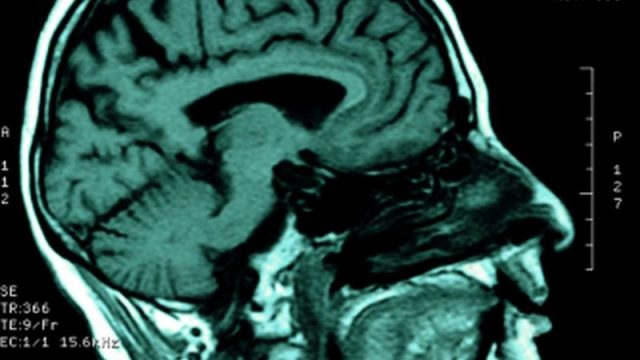






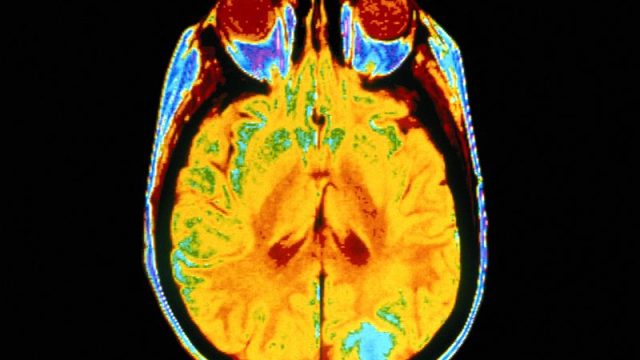





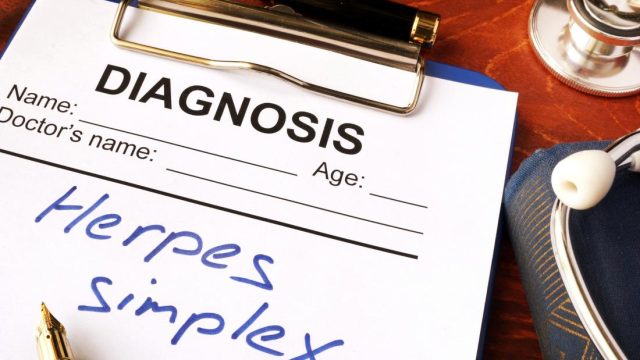
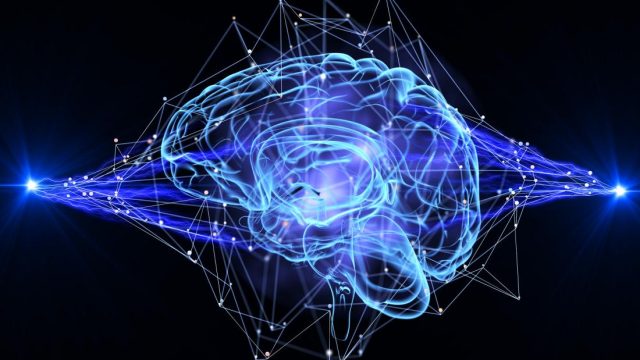
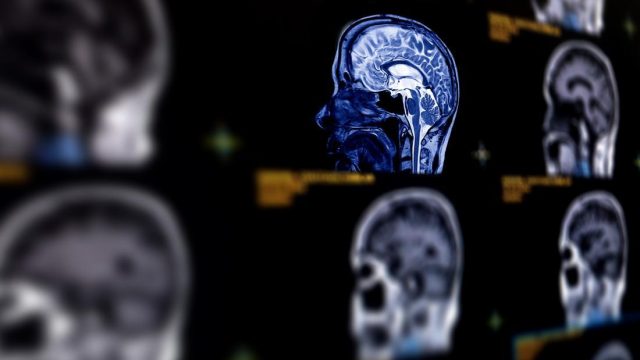





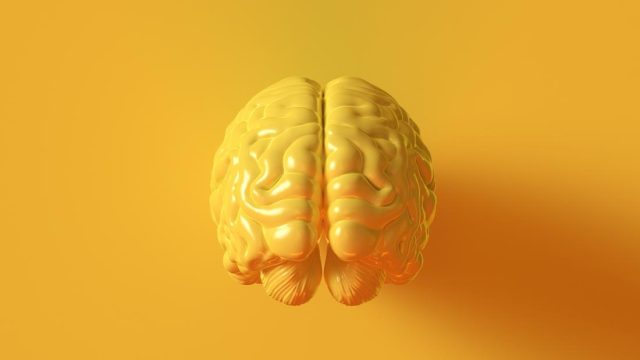


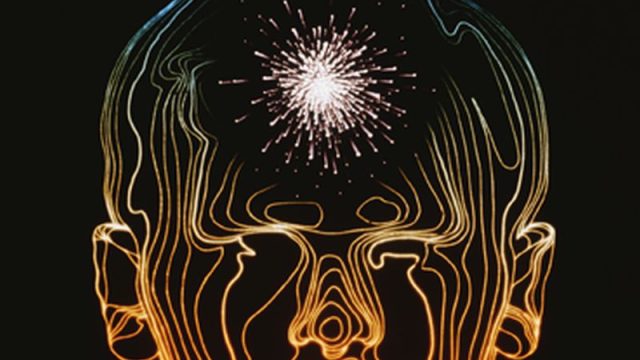
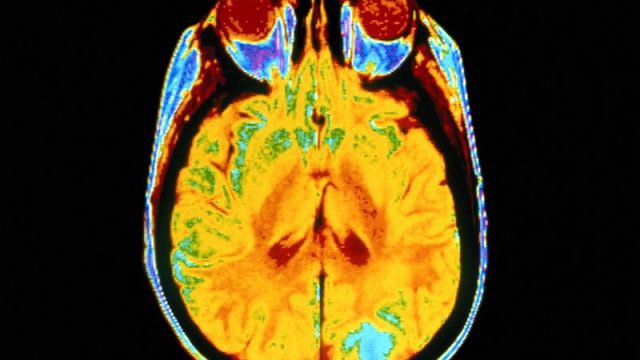





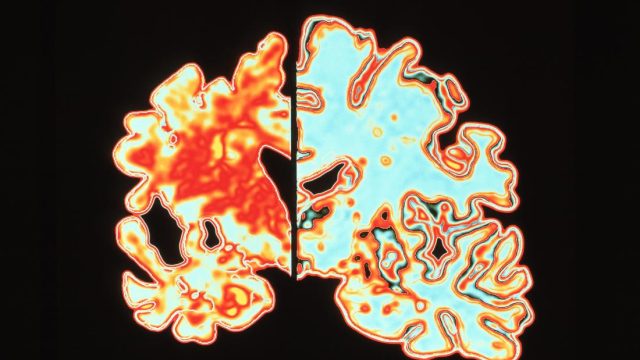








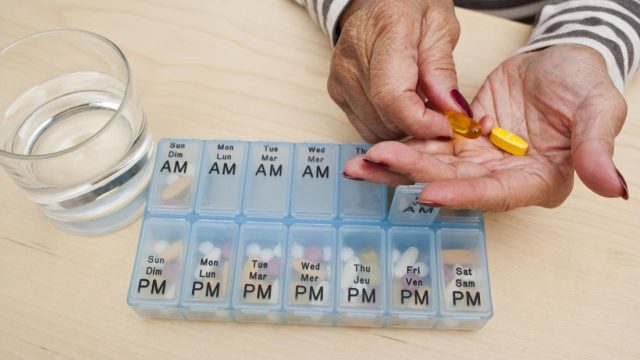
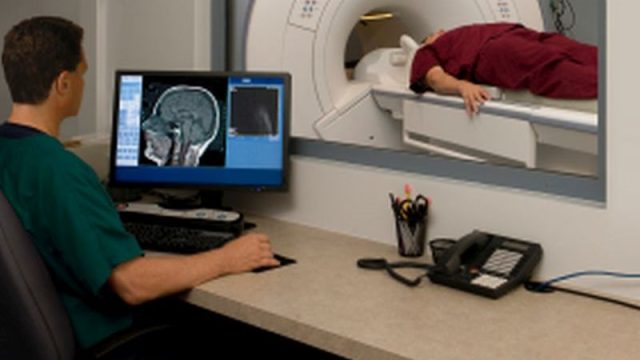
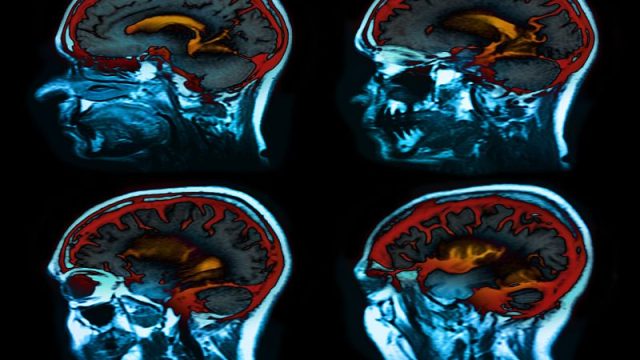























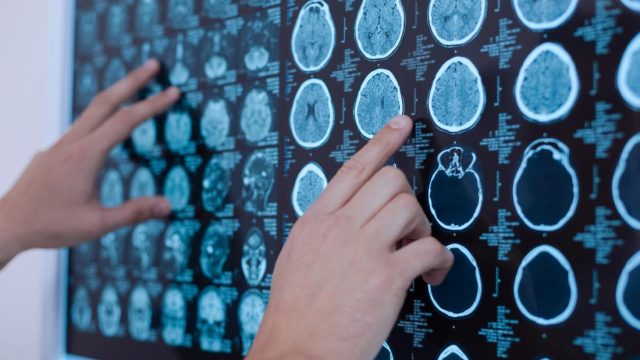










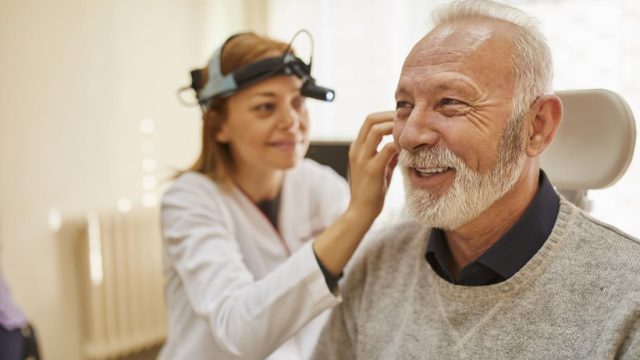


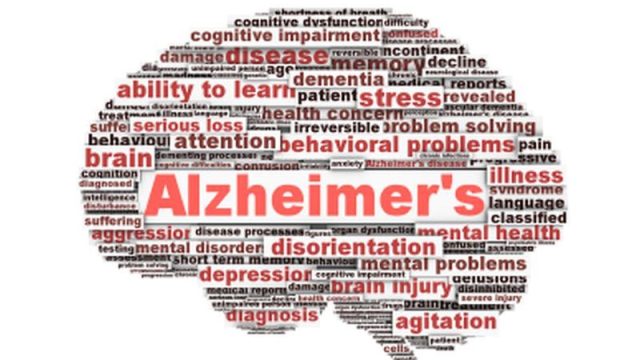
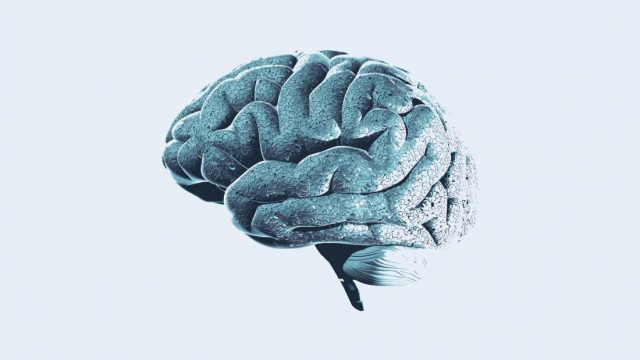





Recent Comments